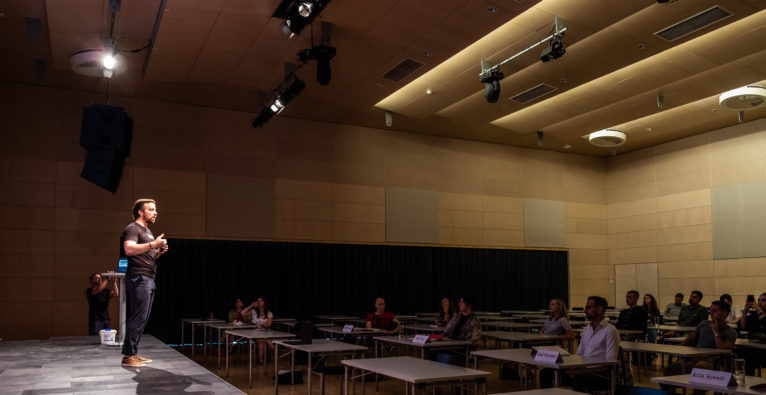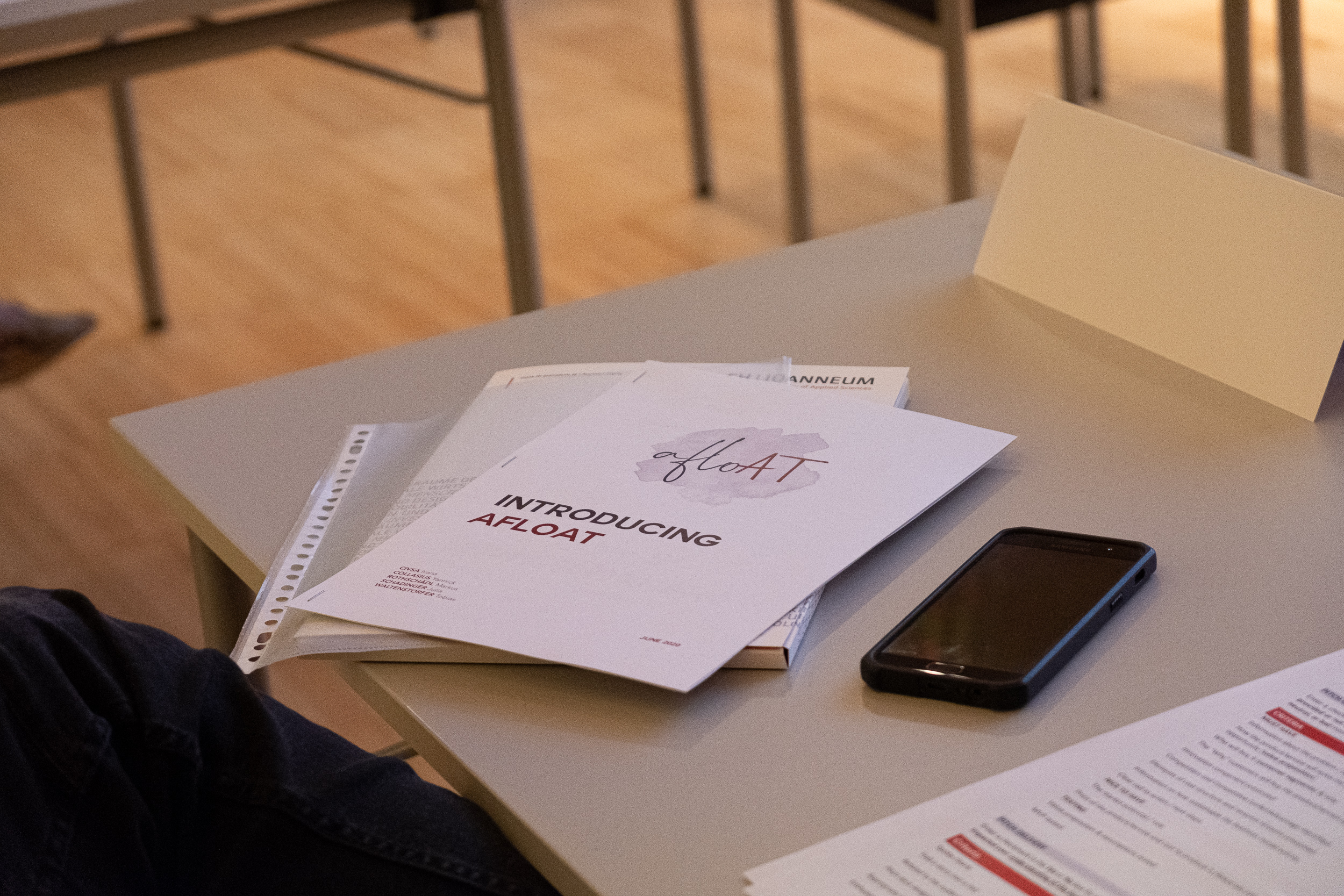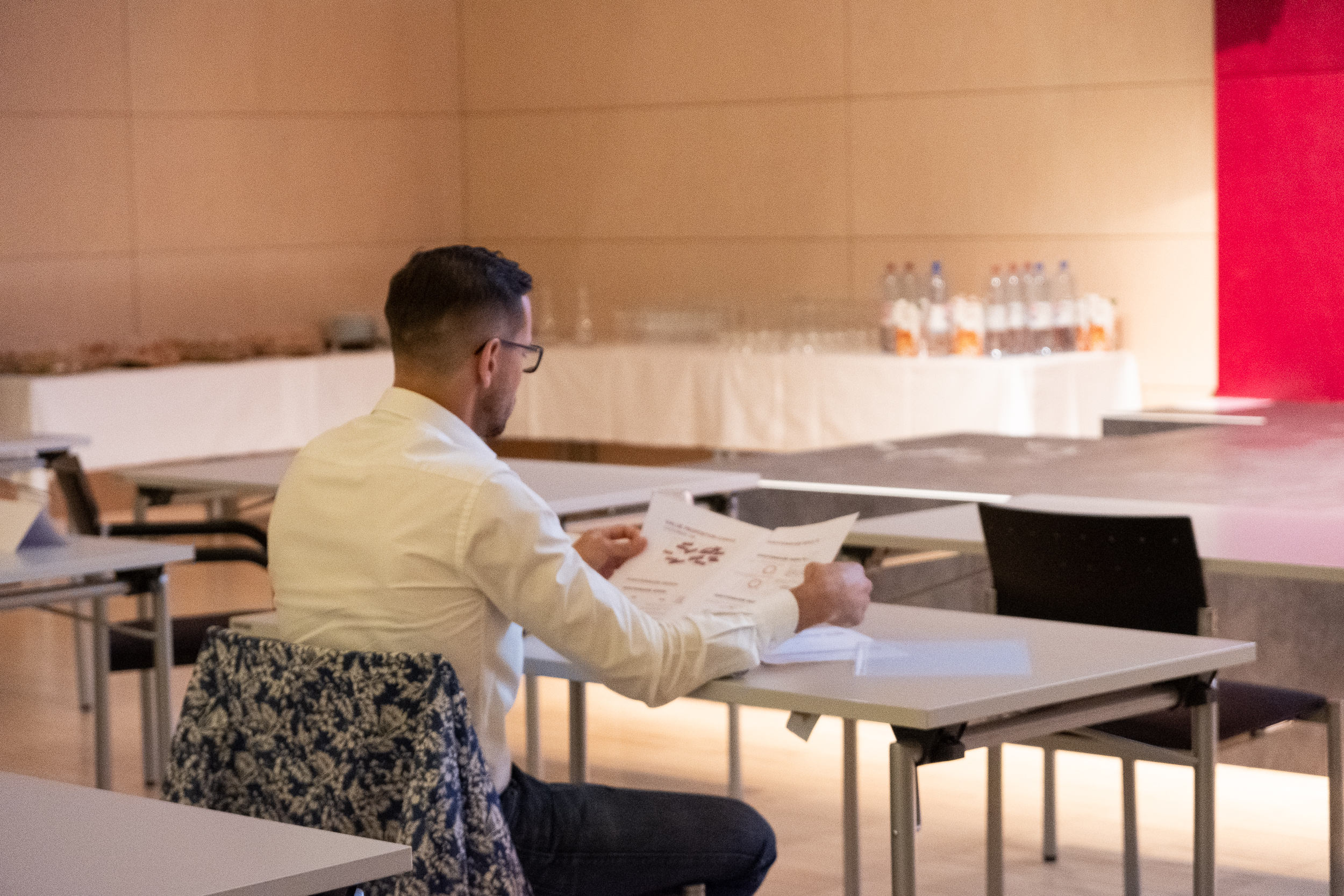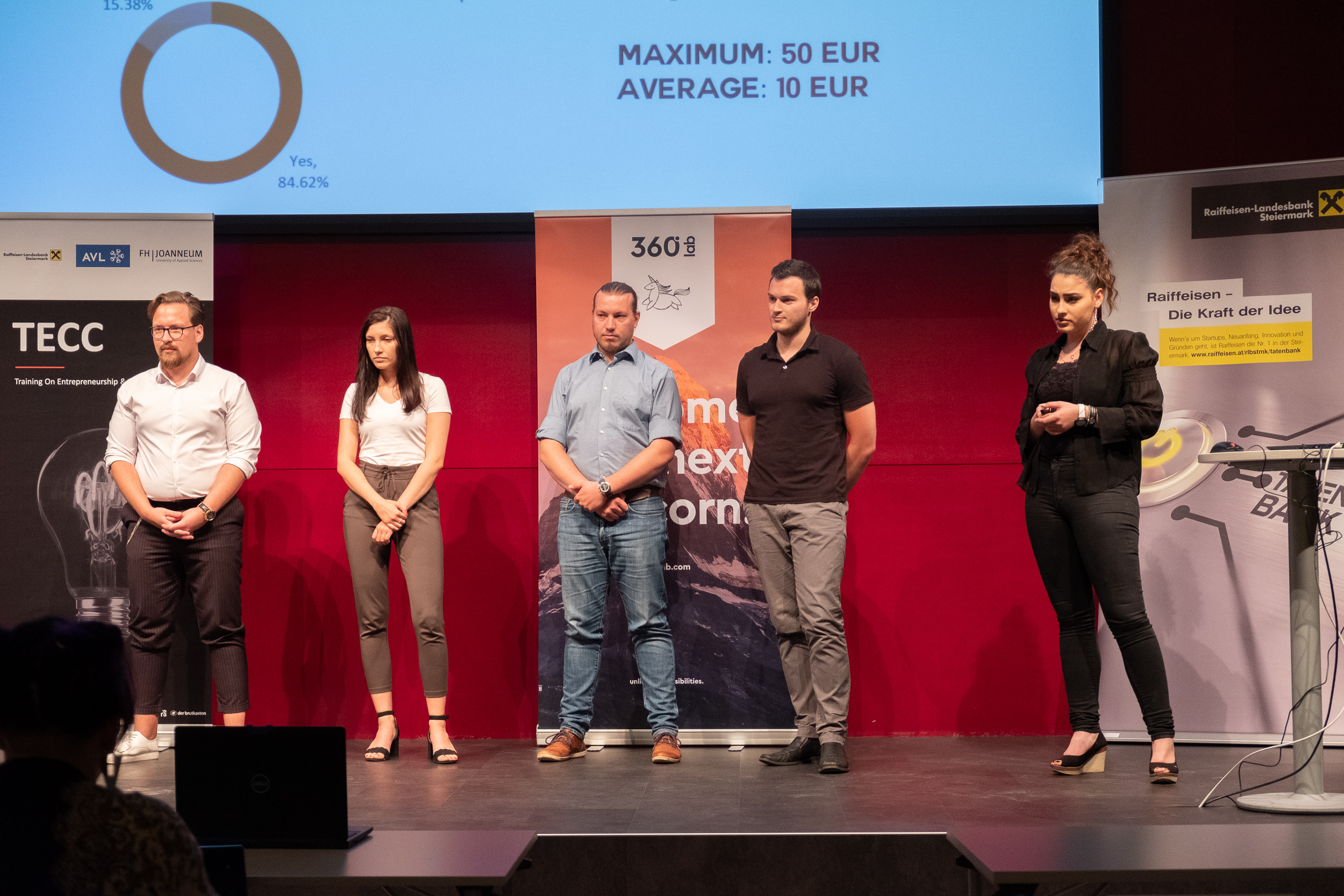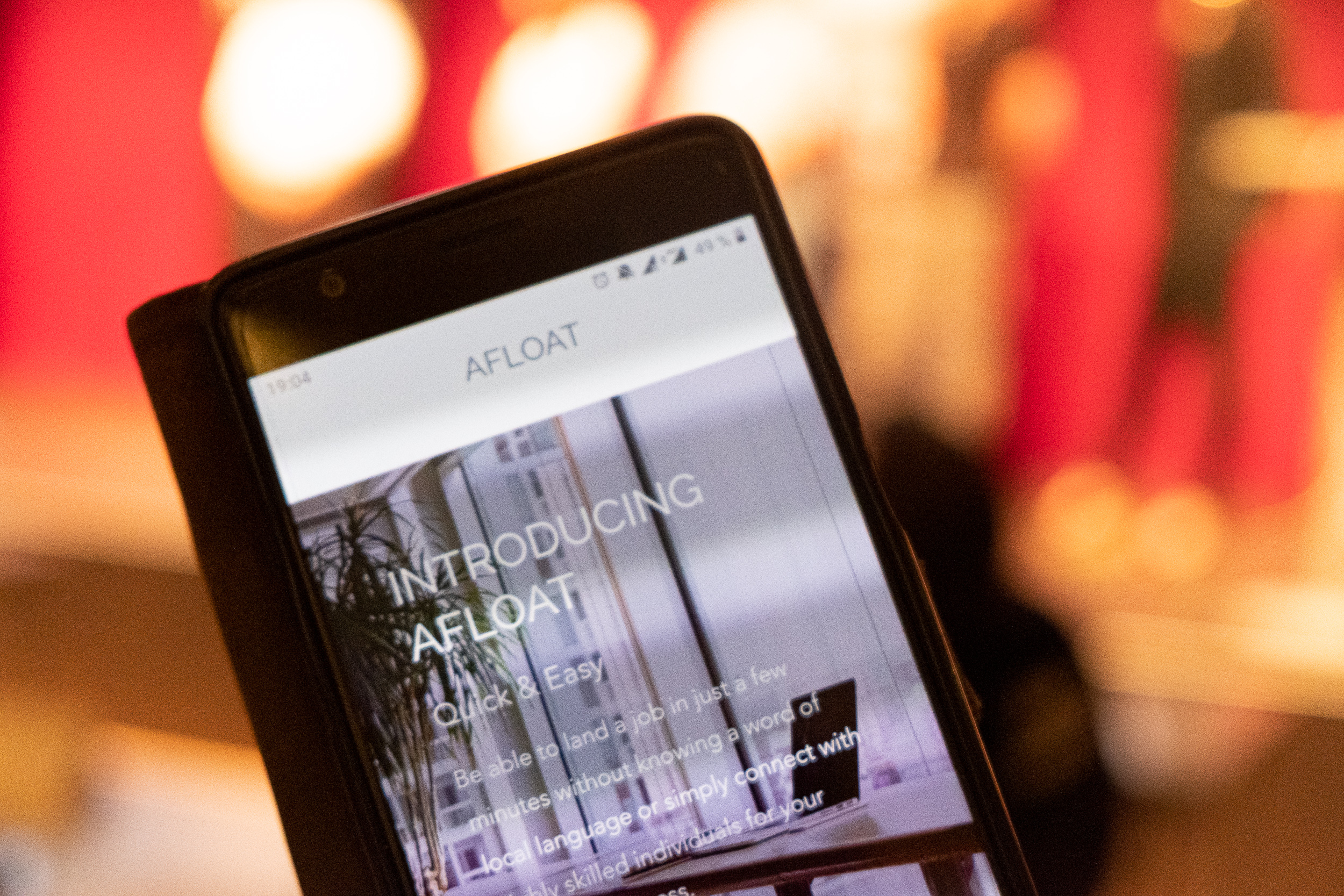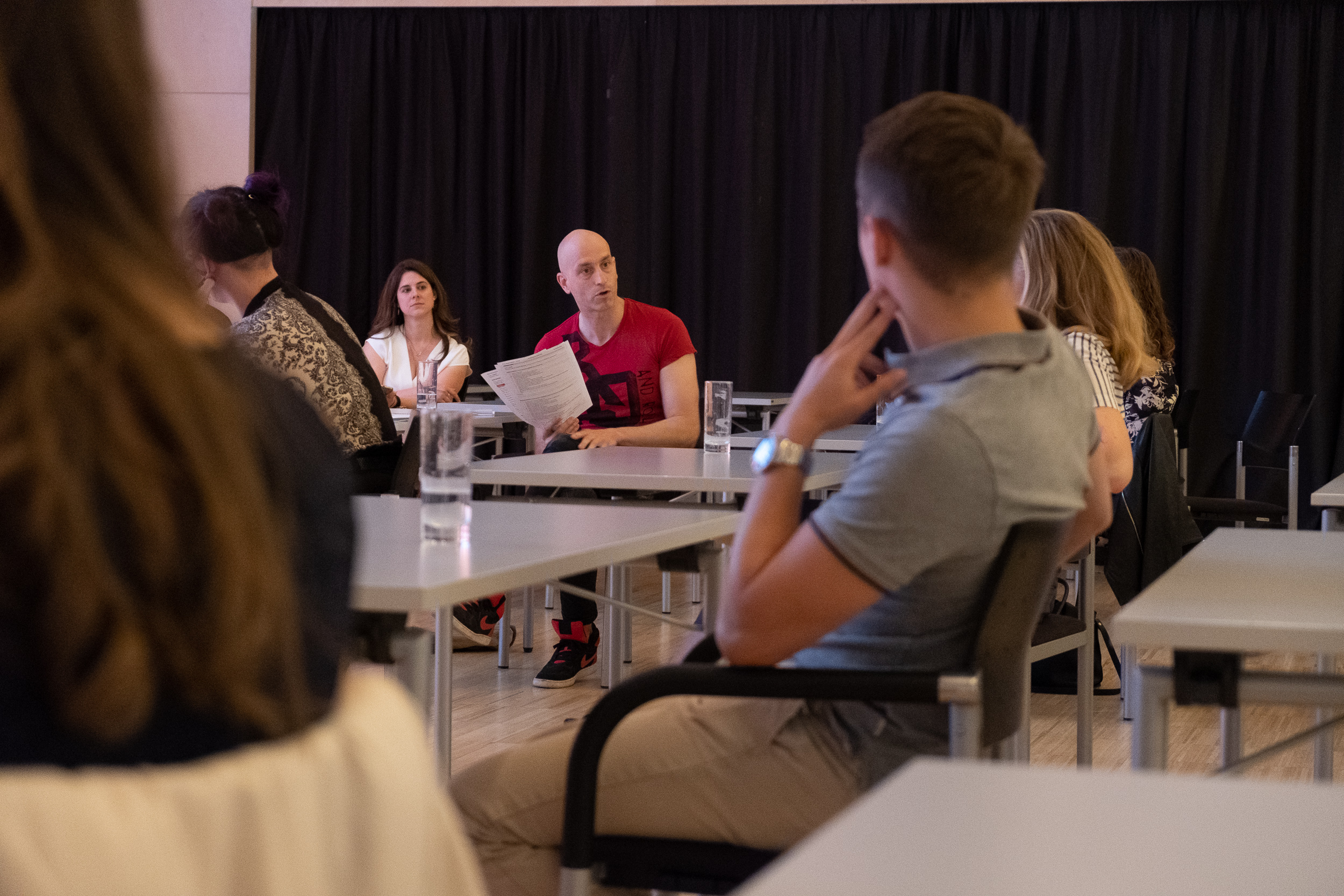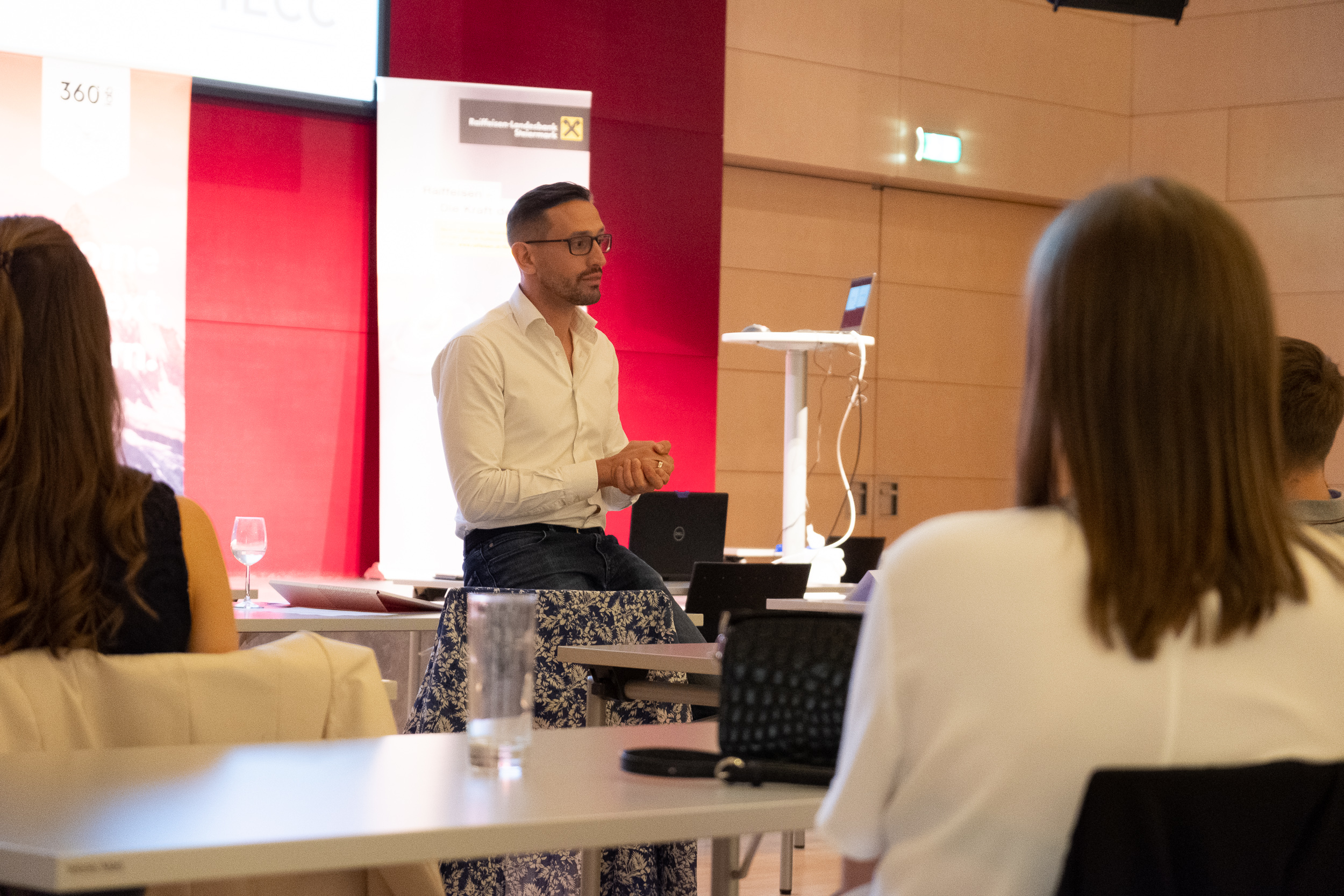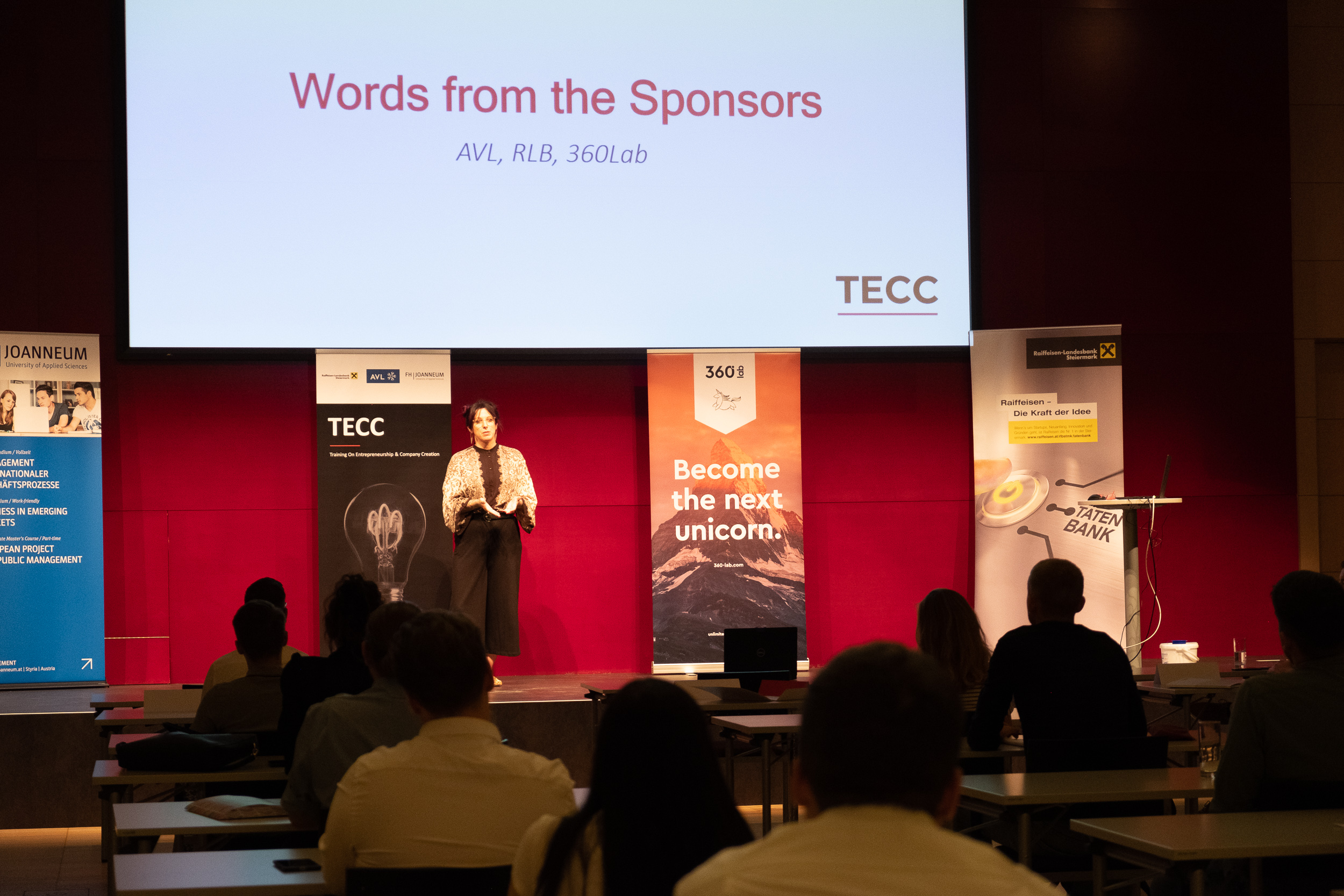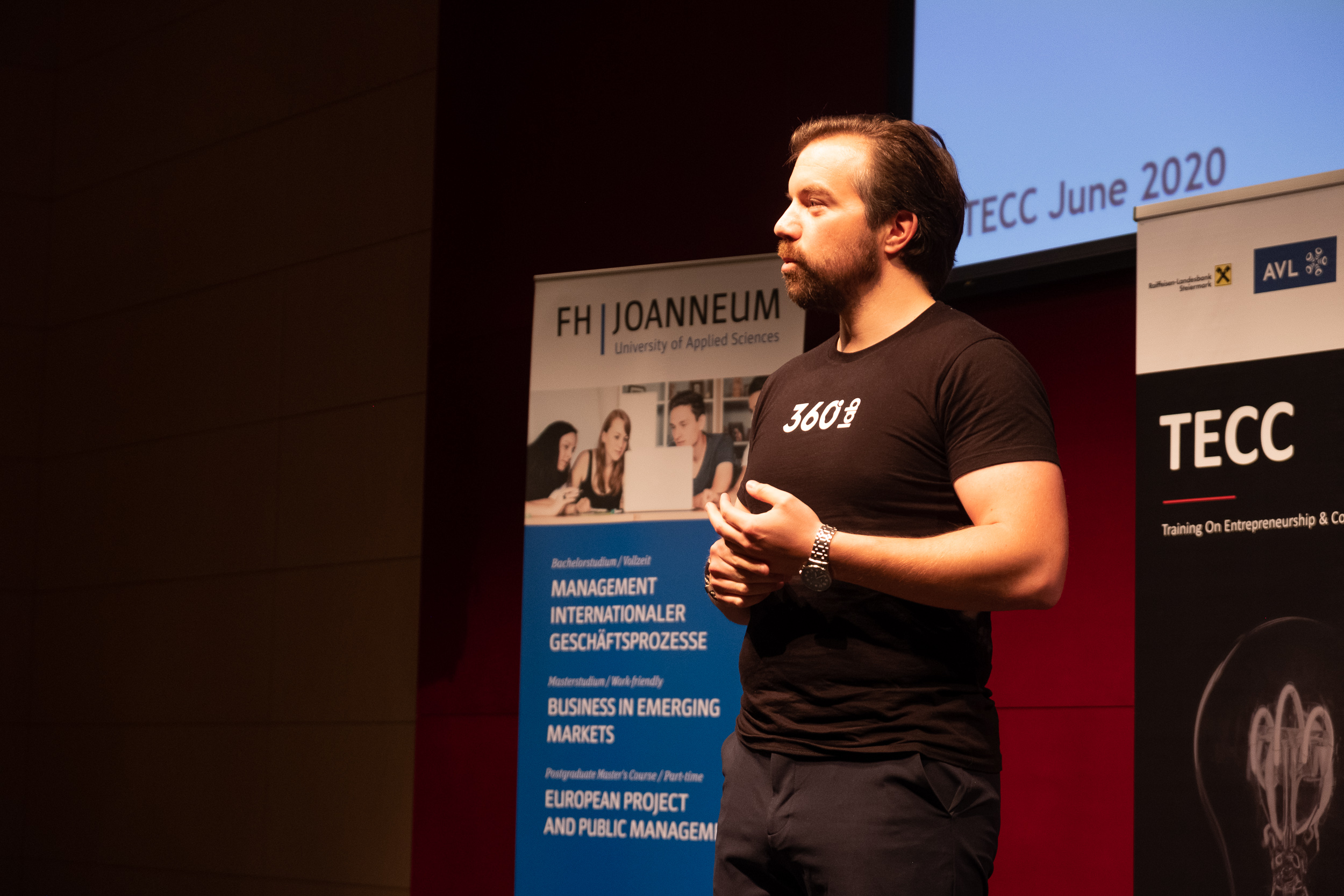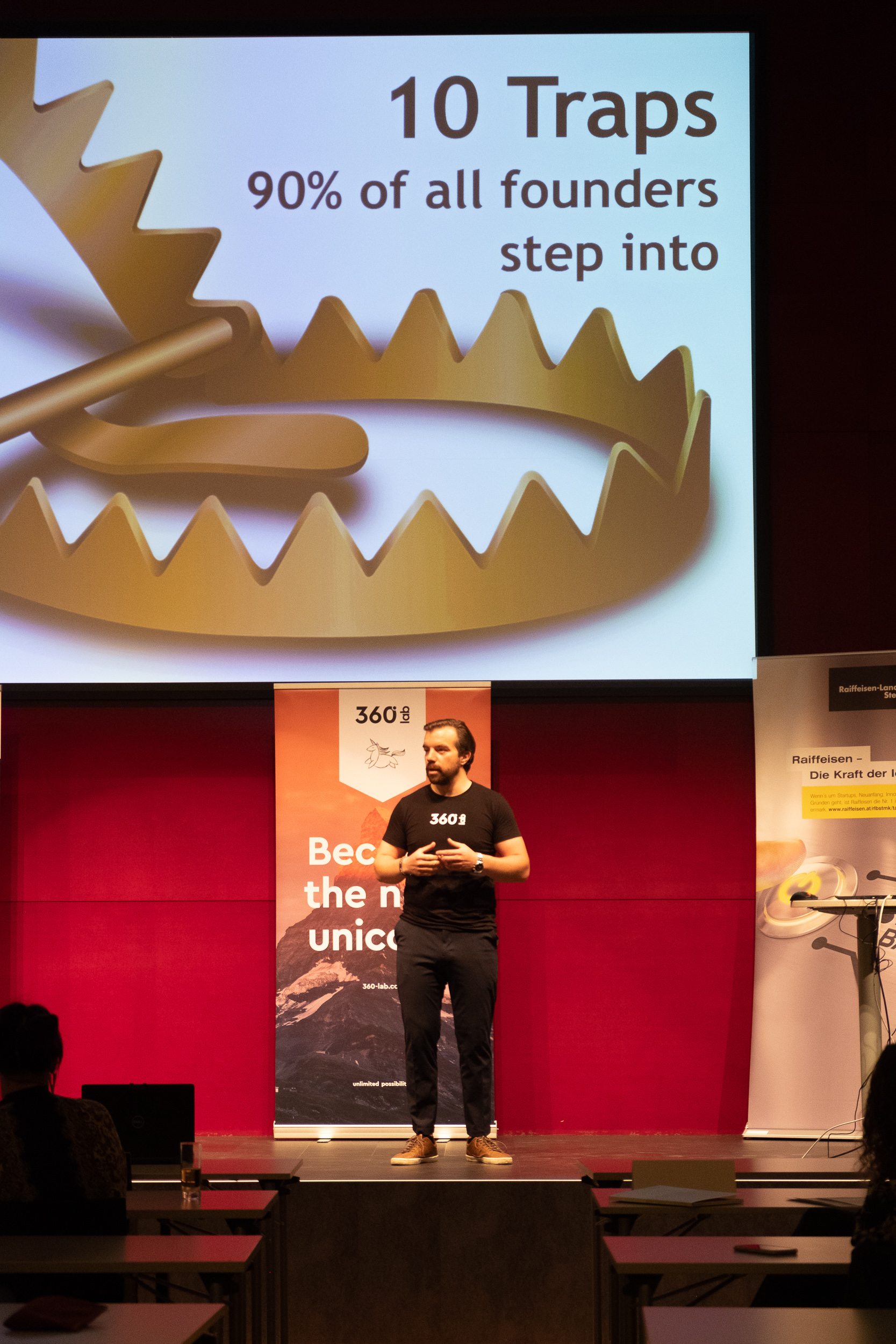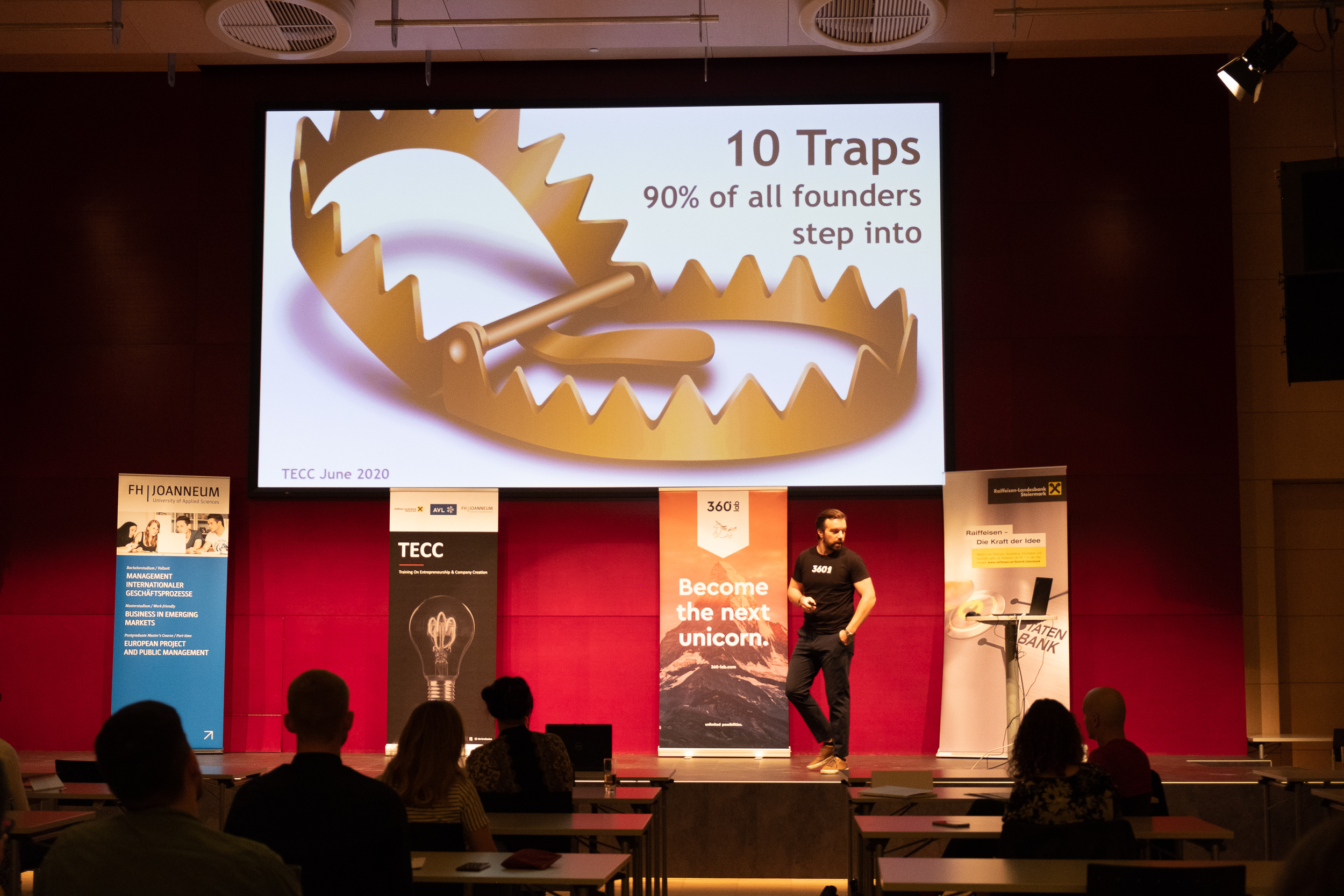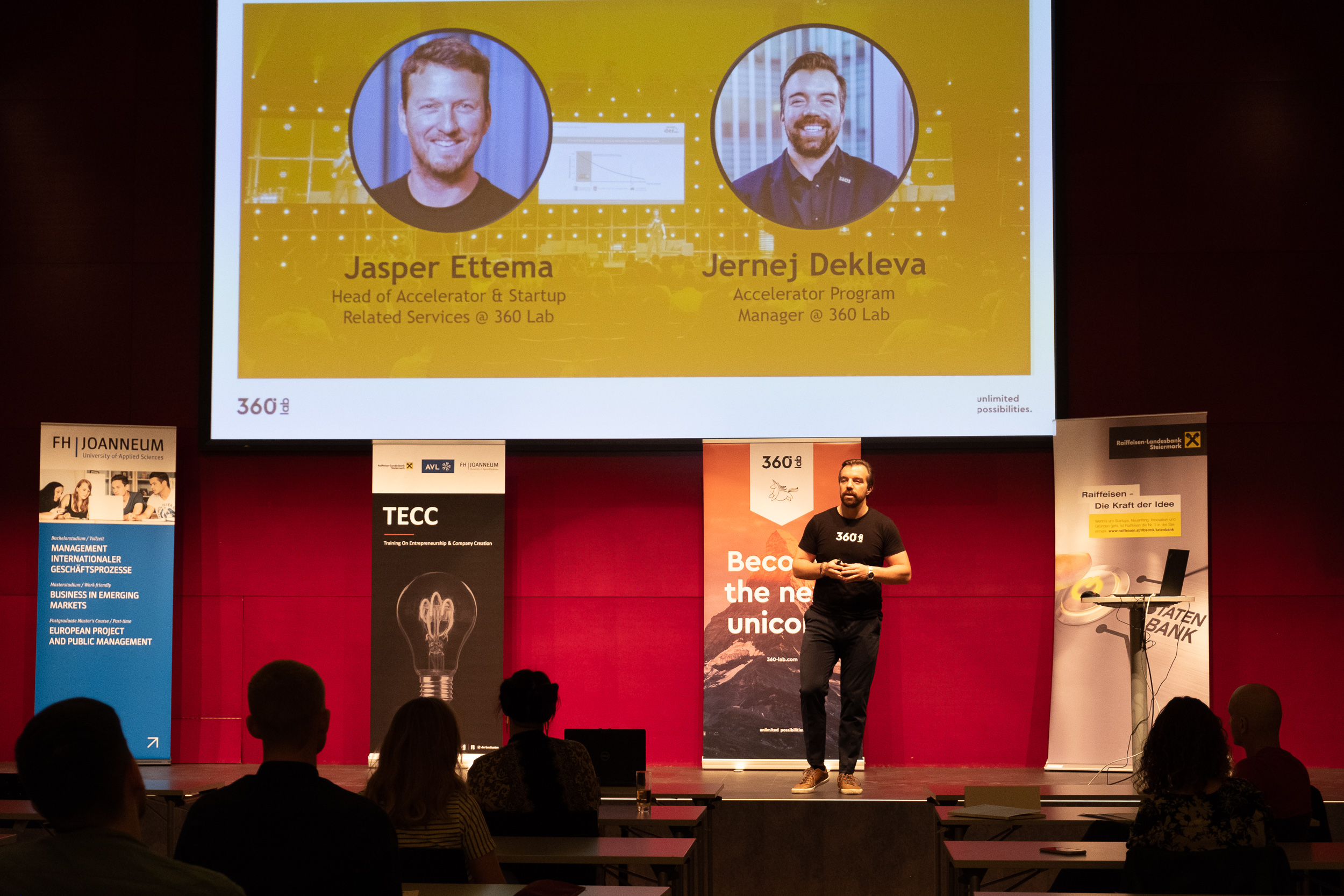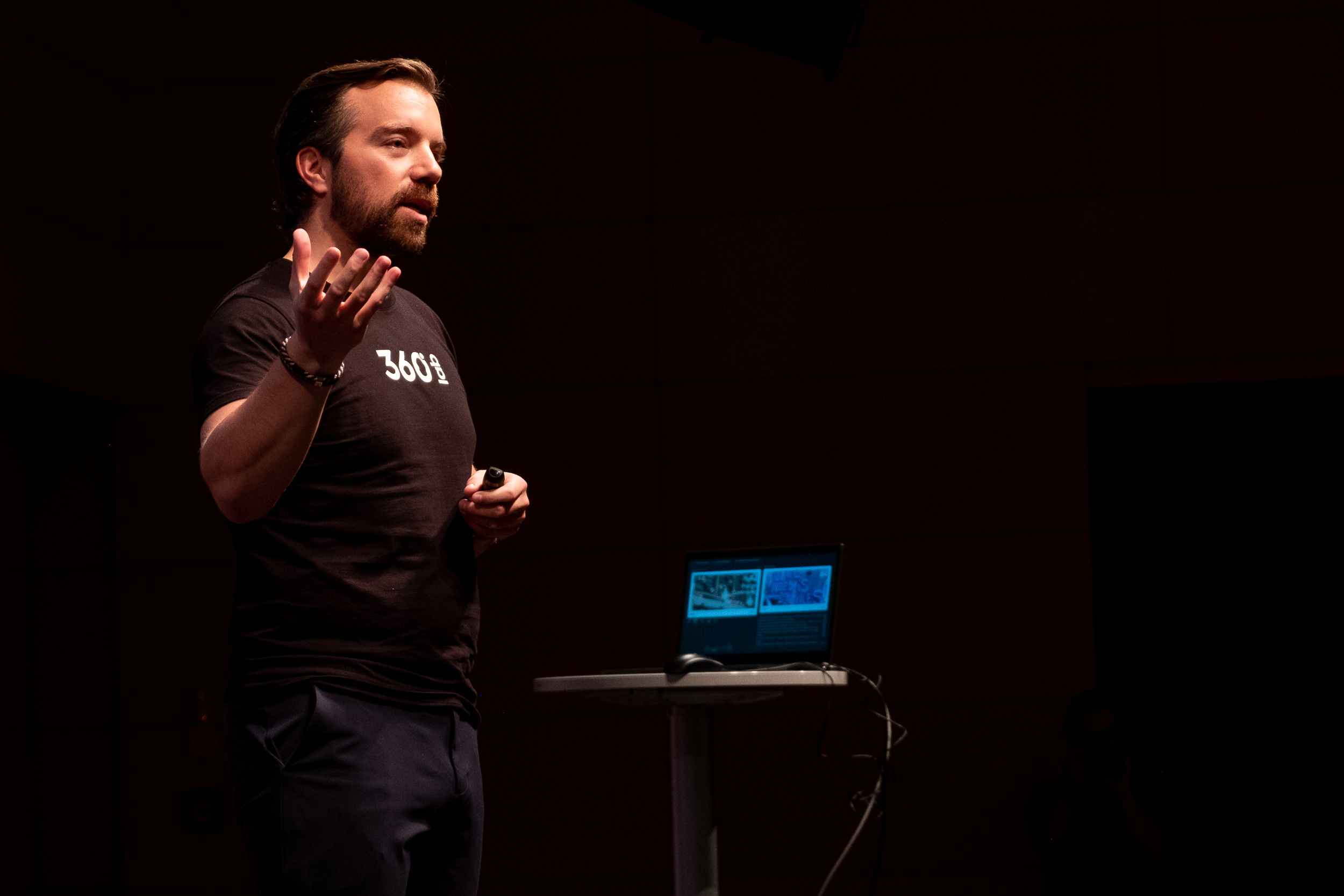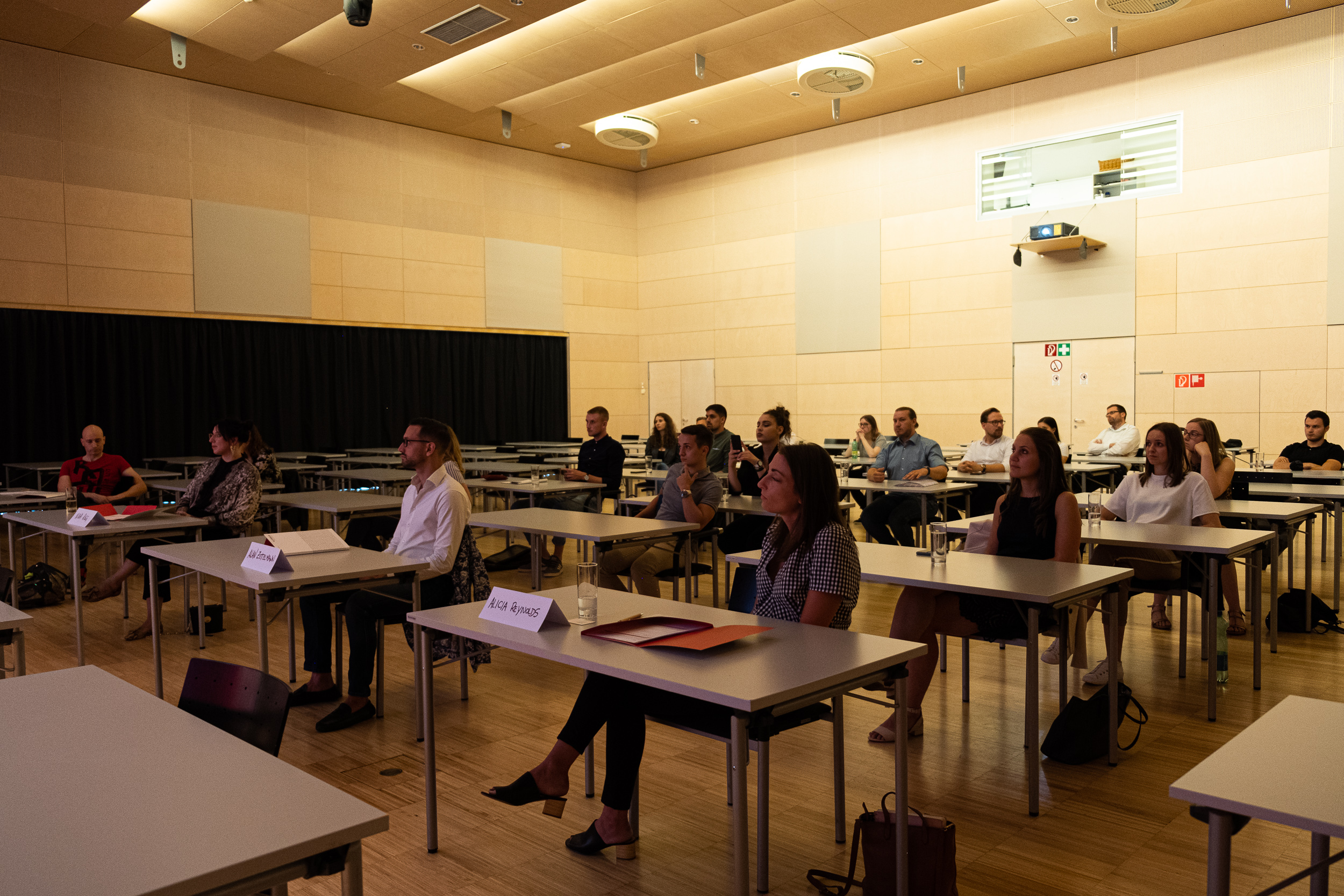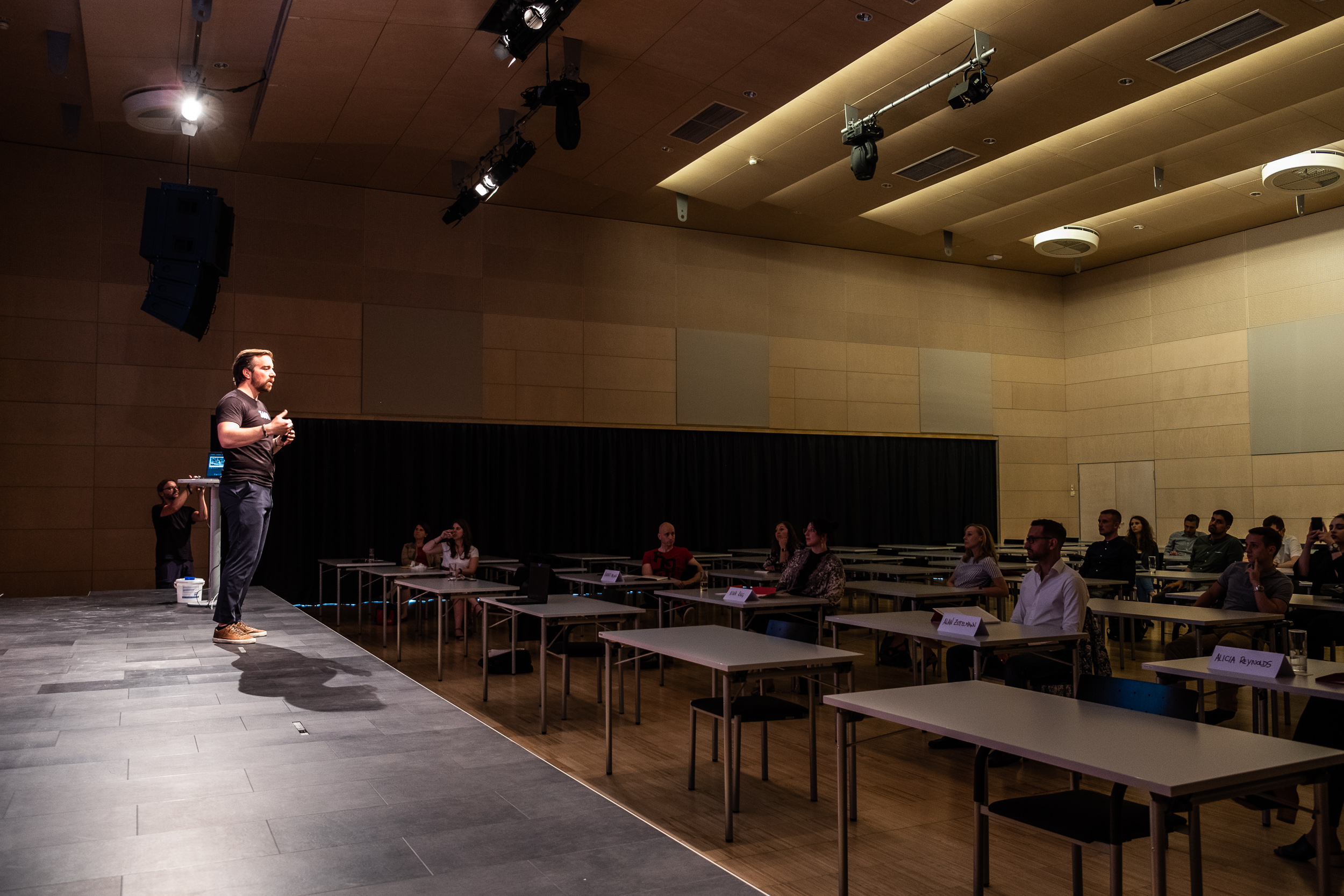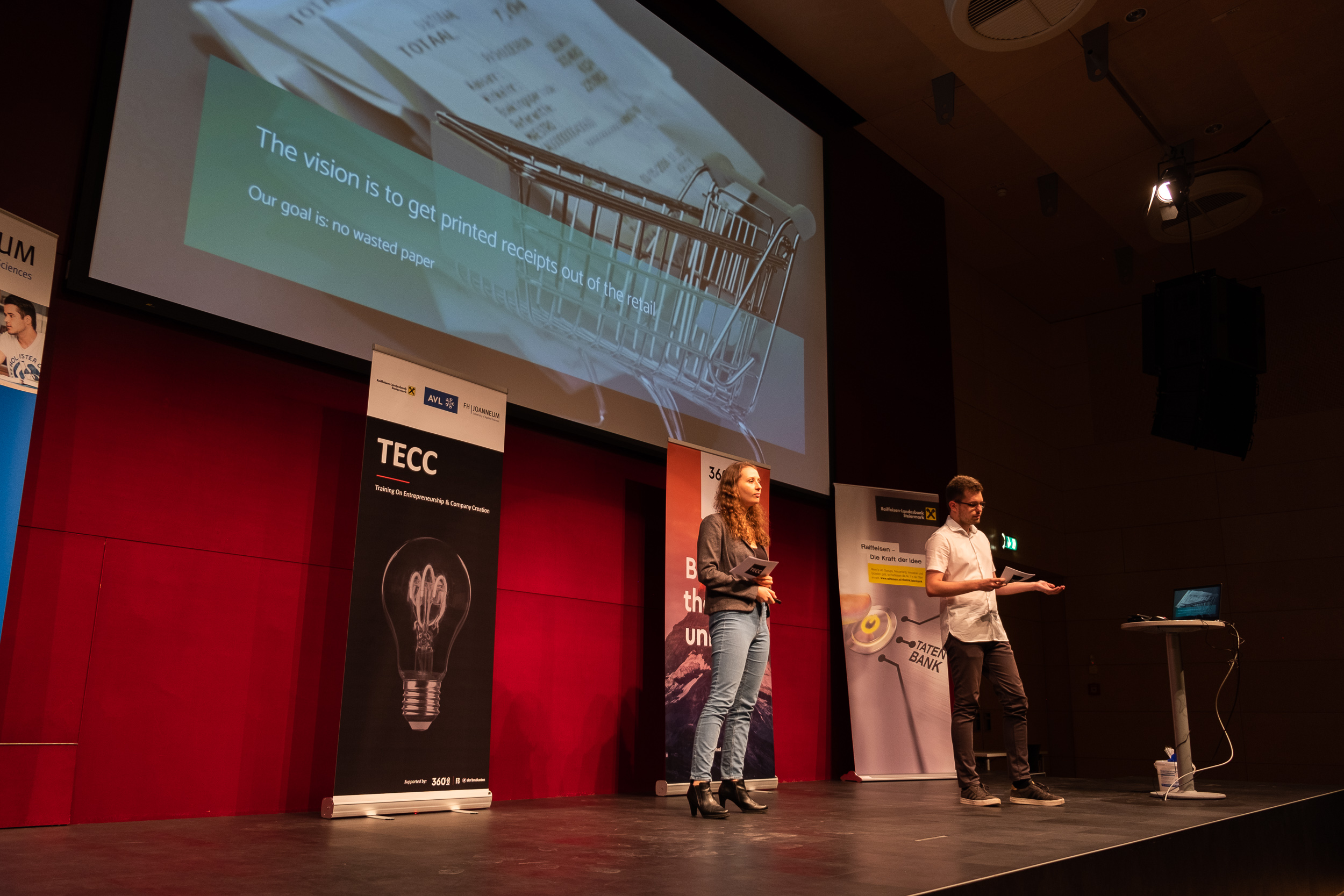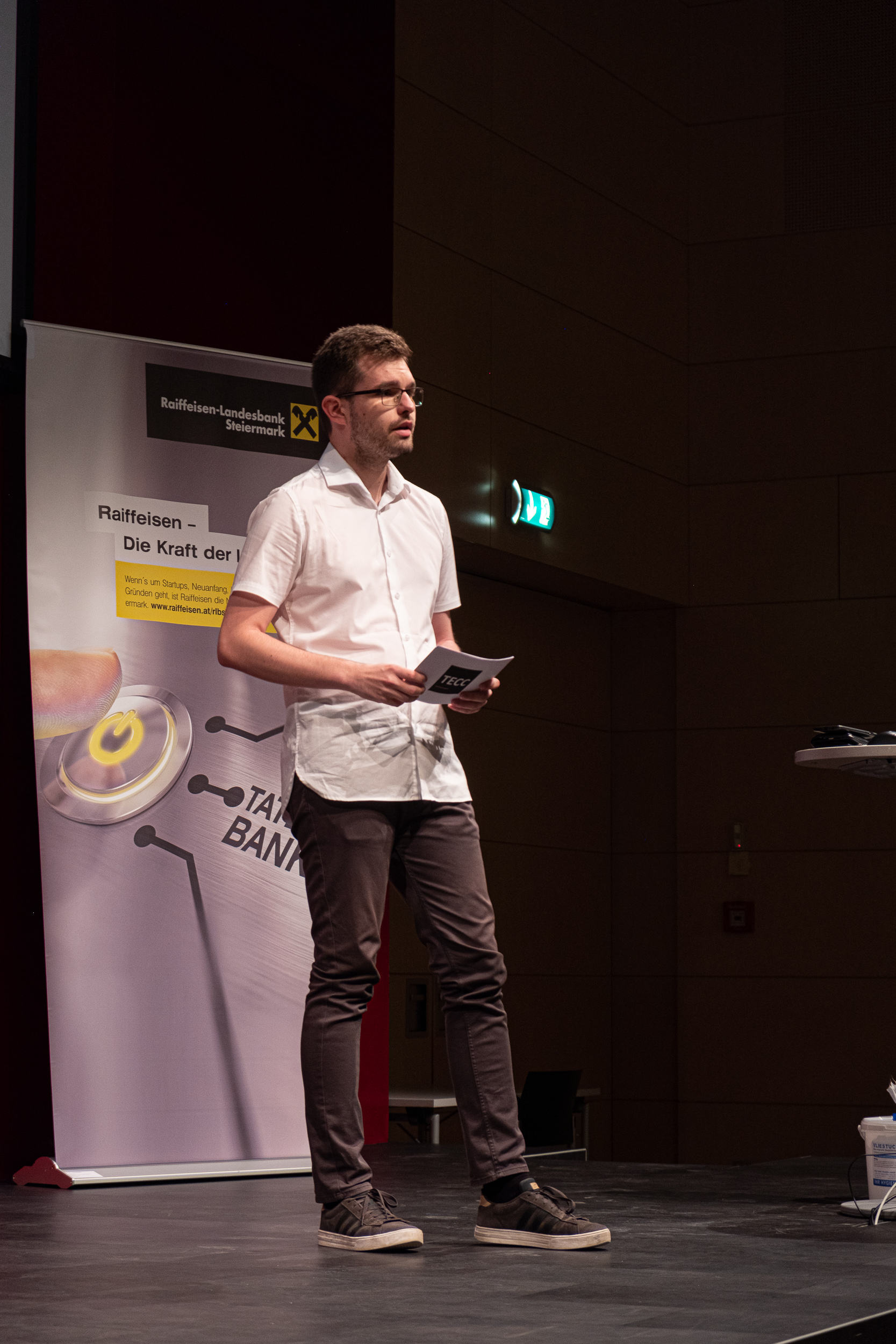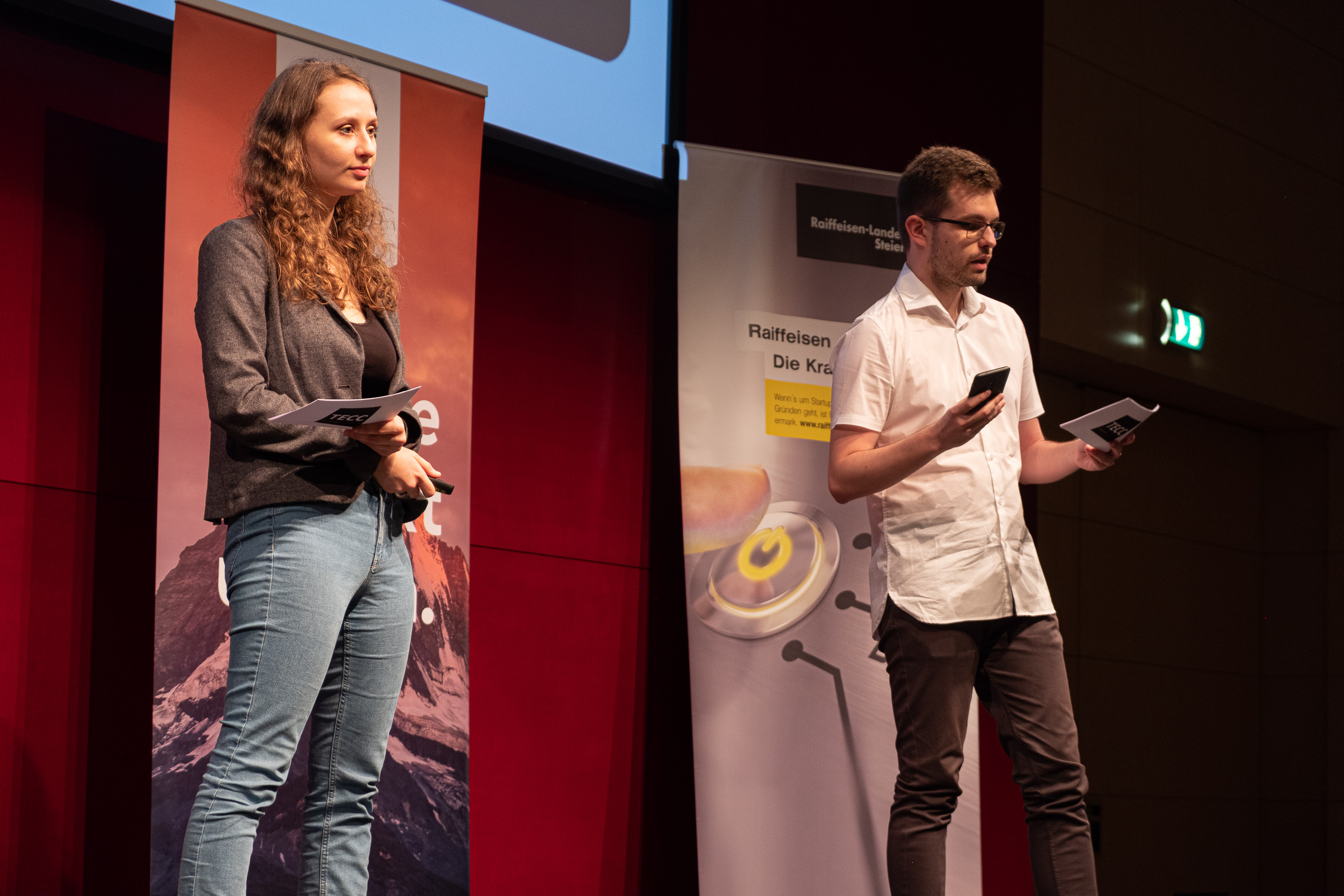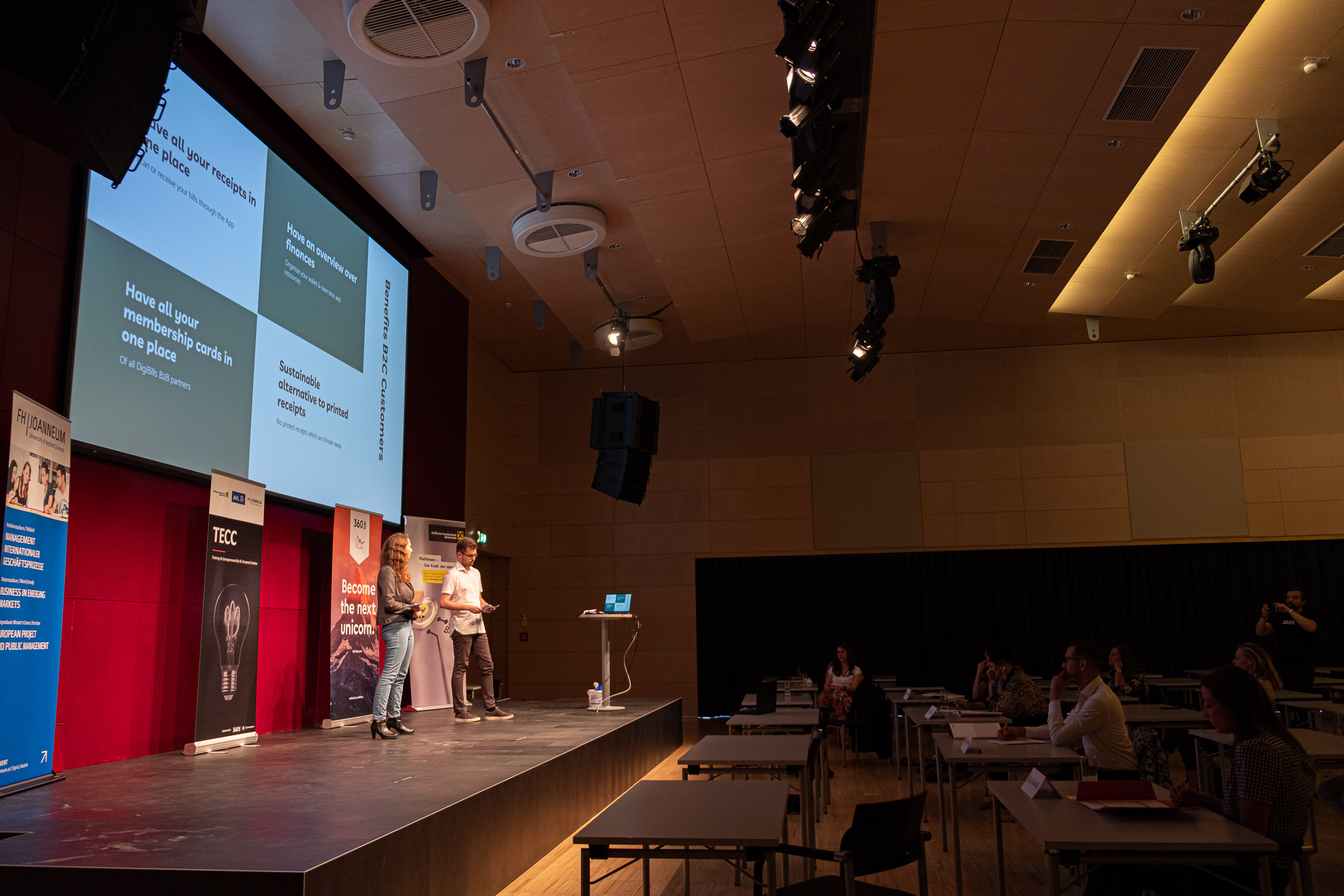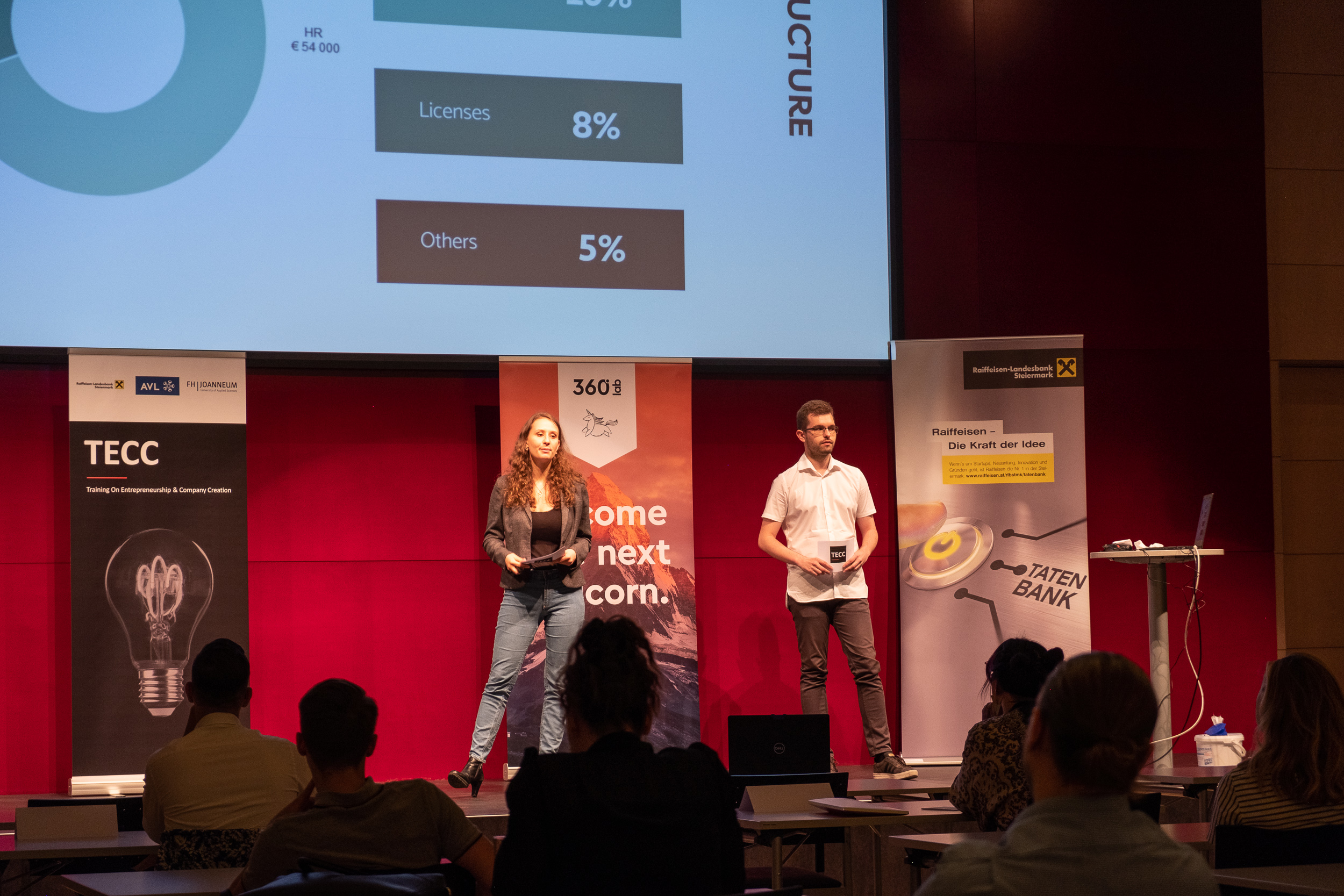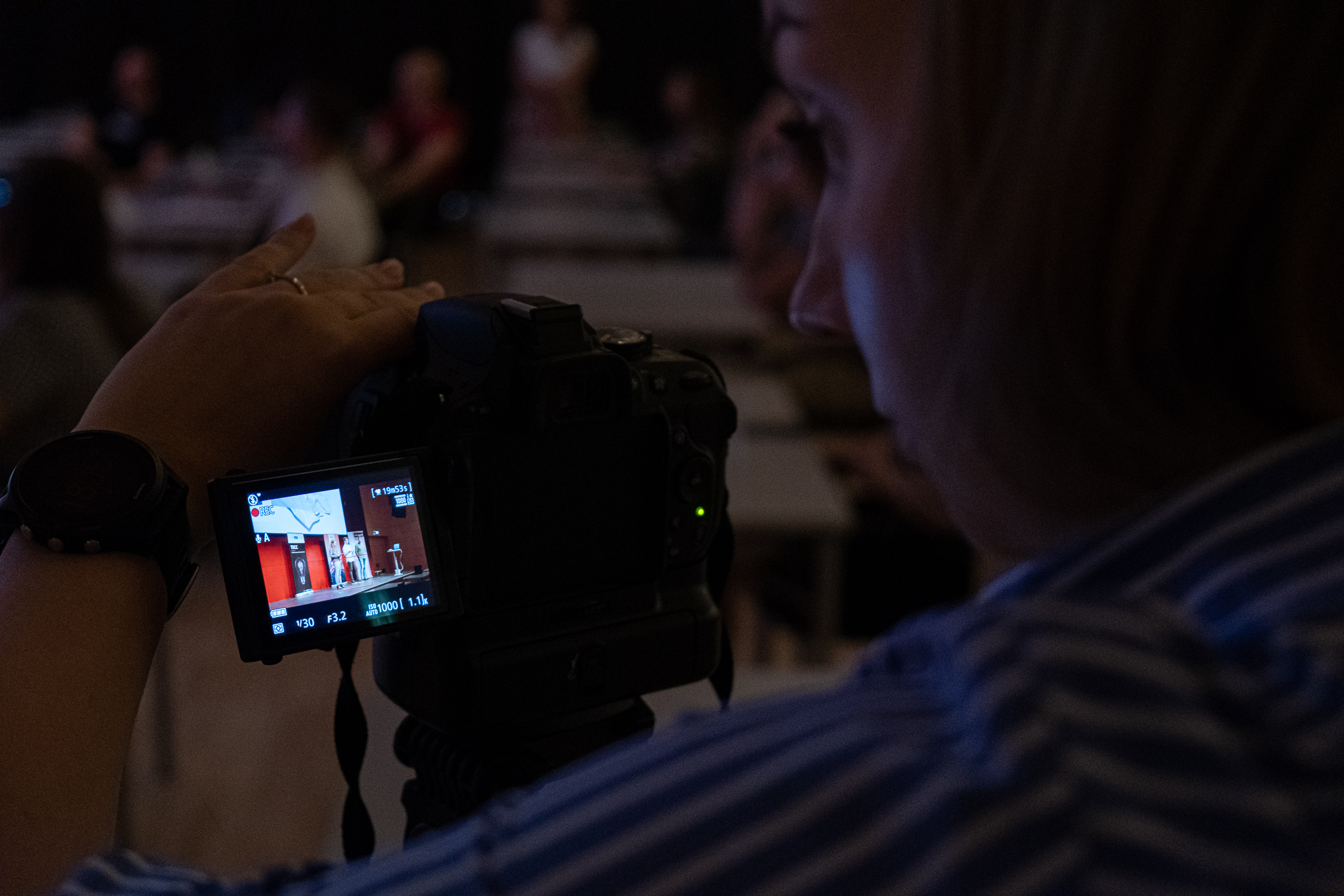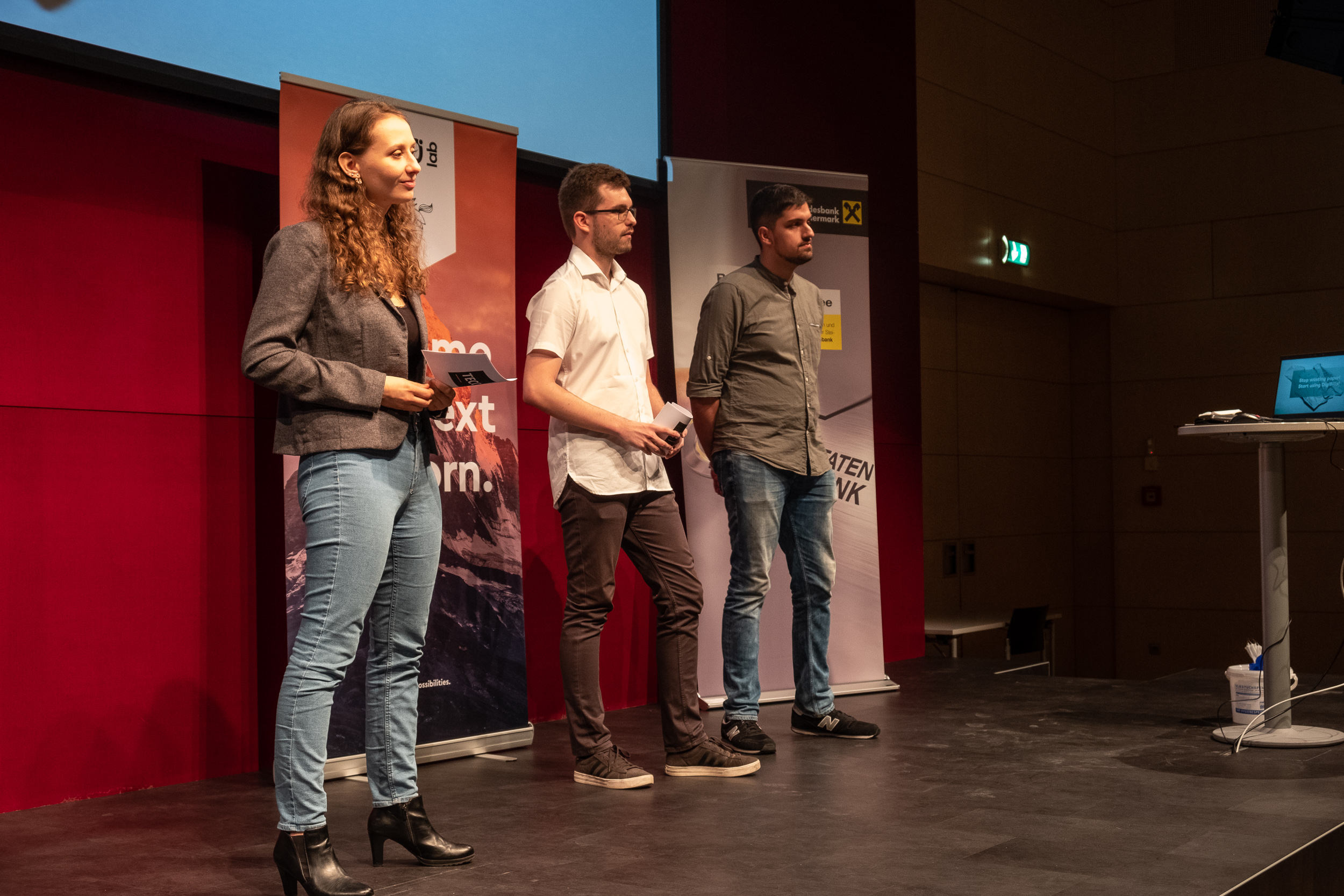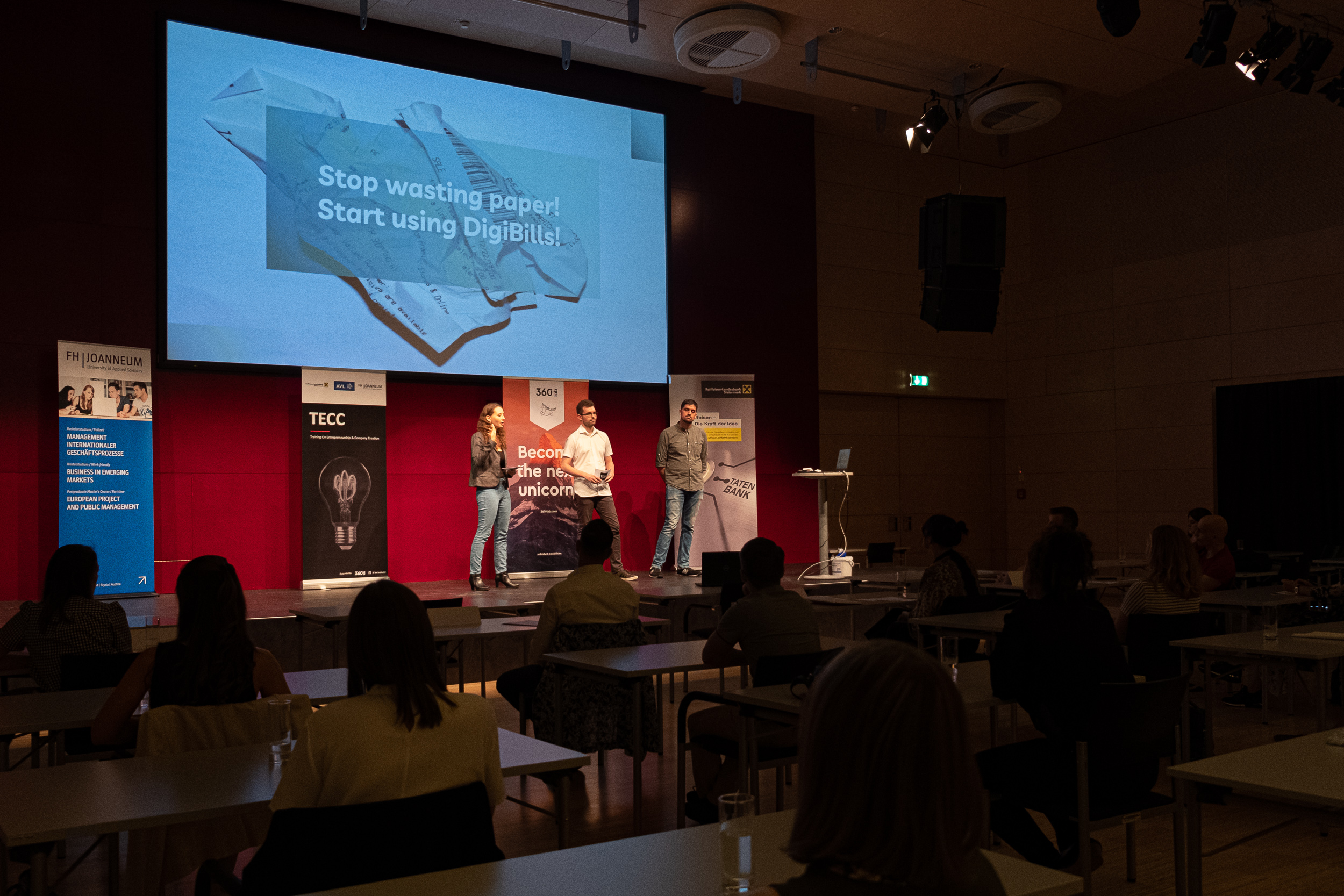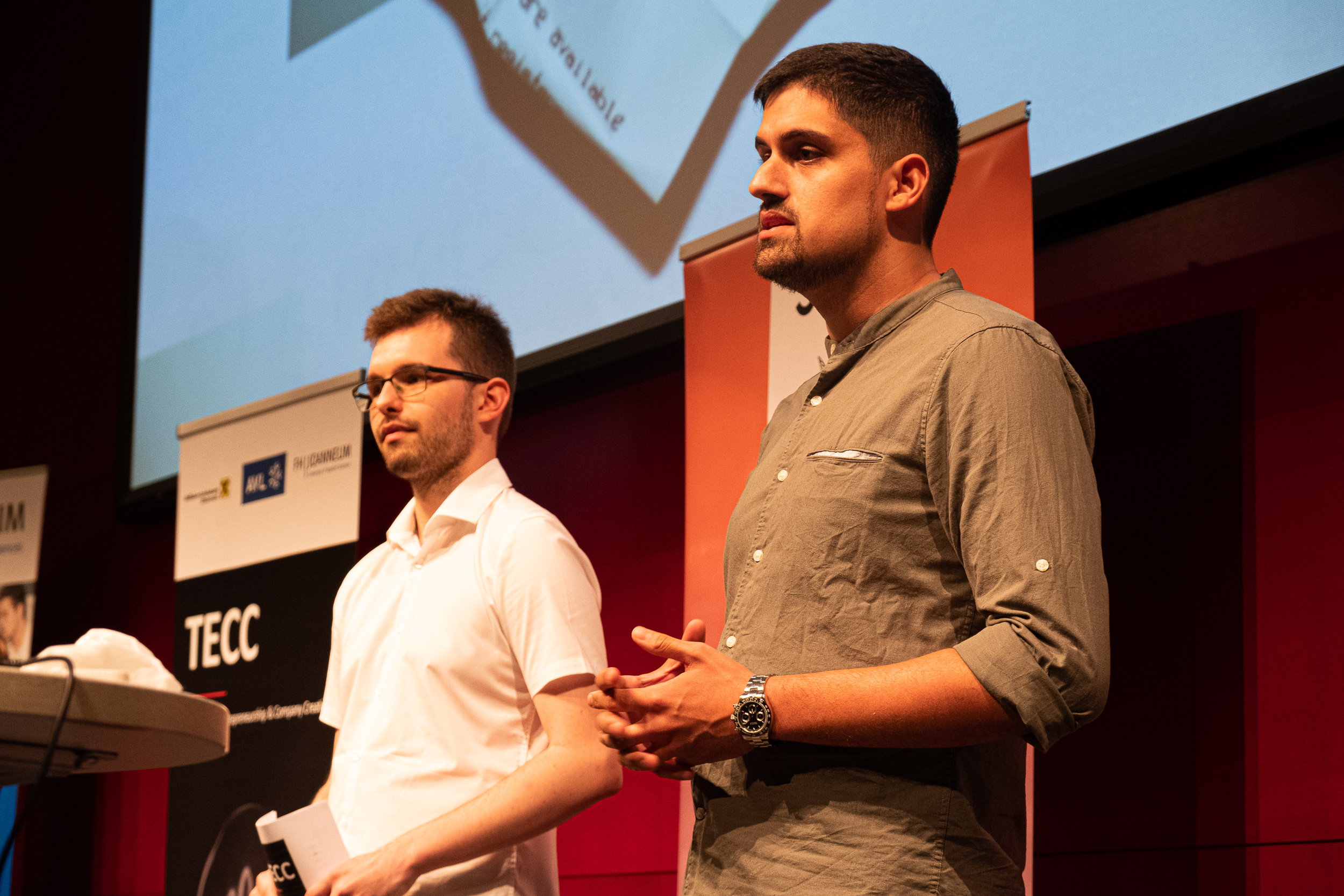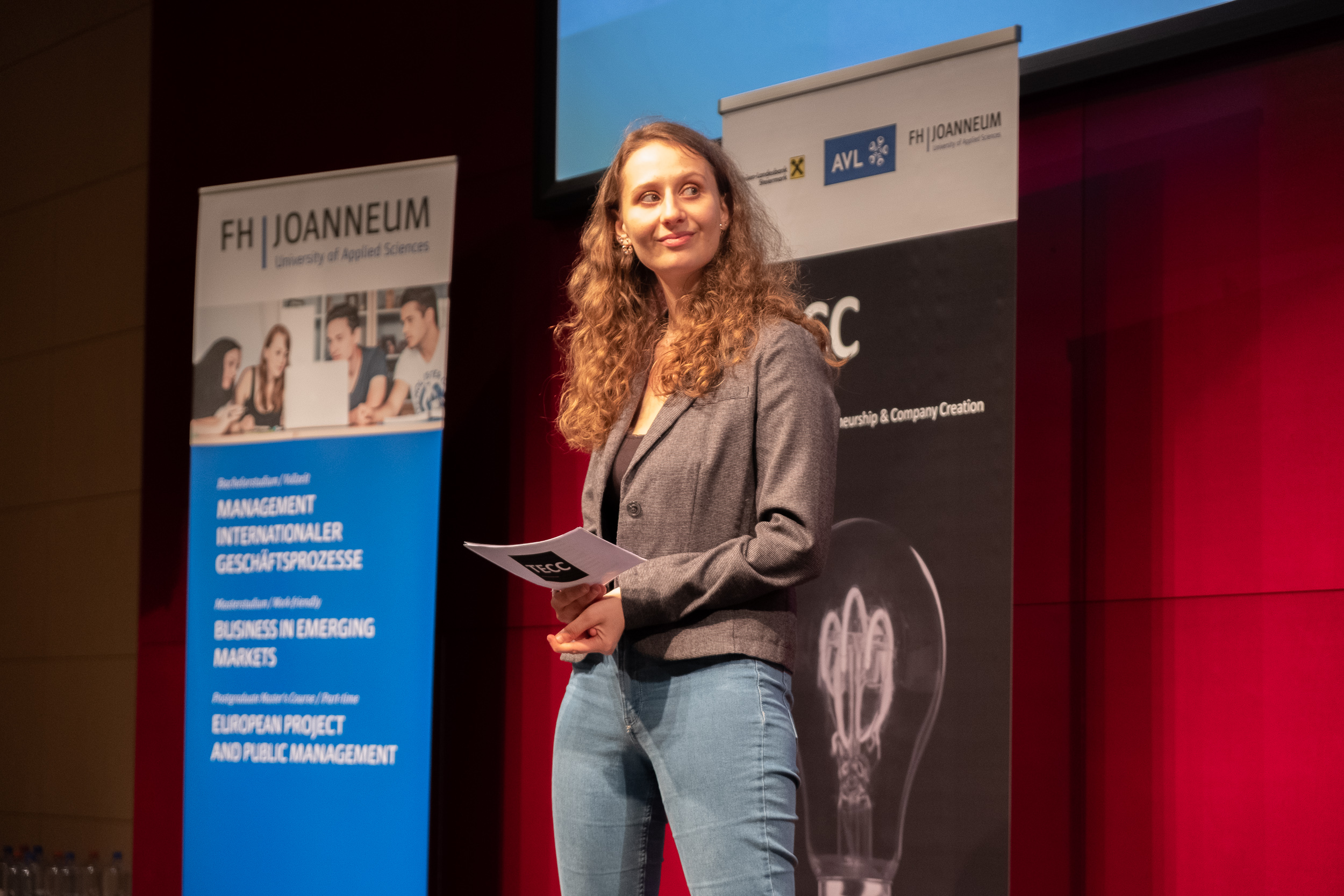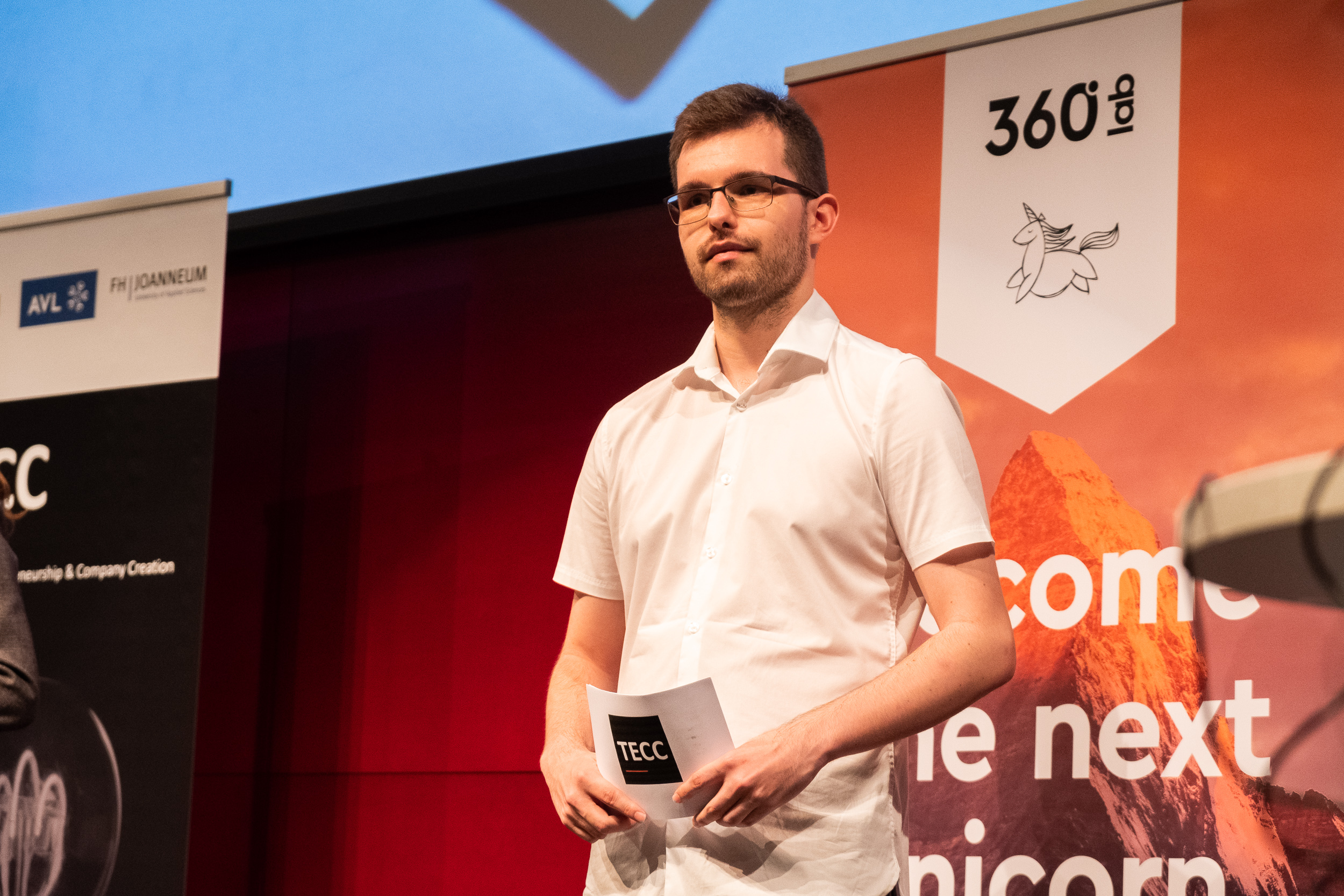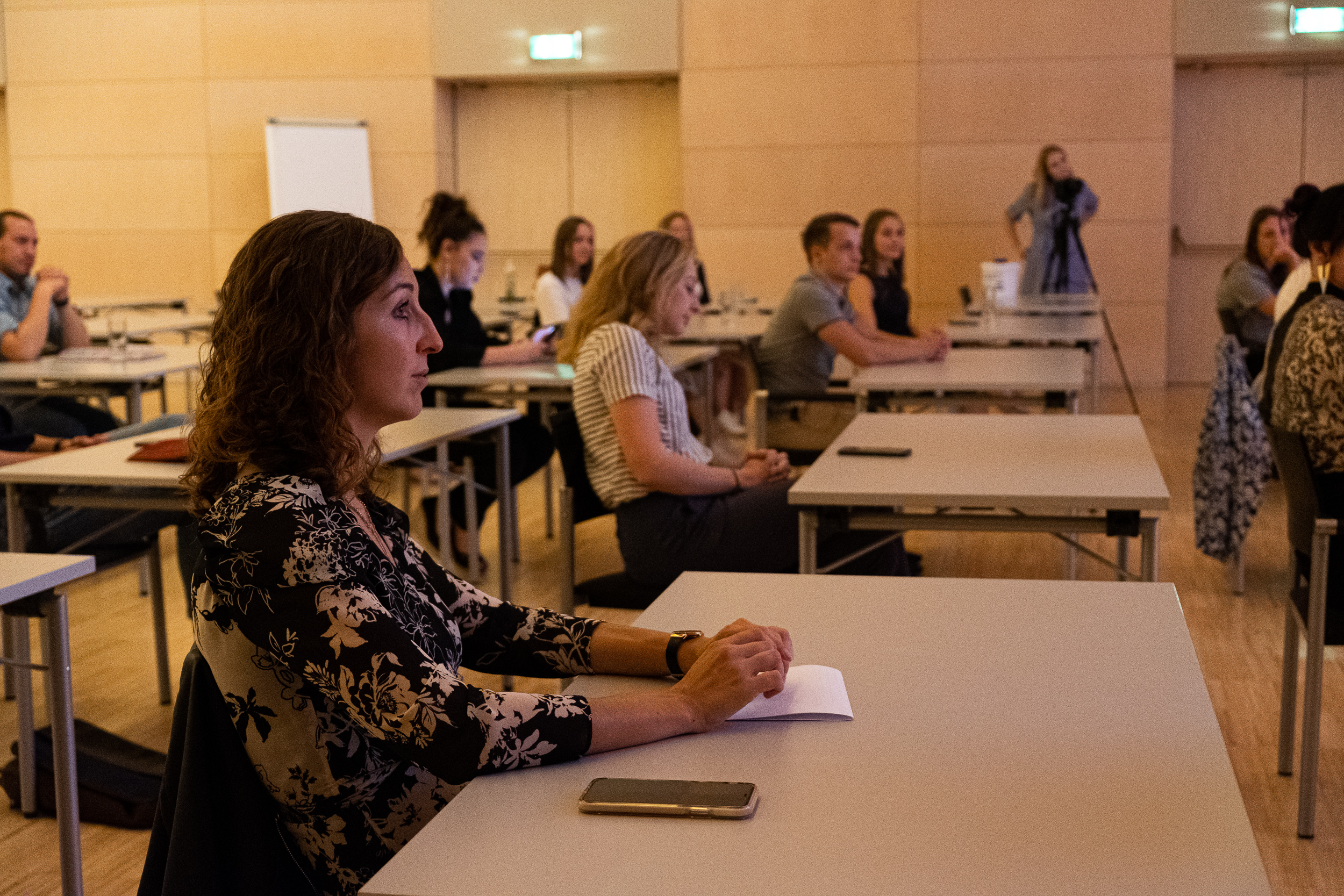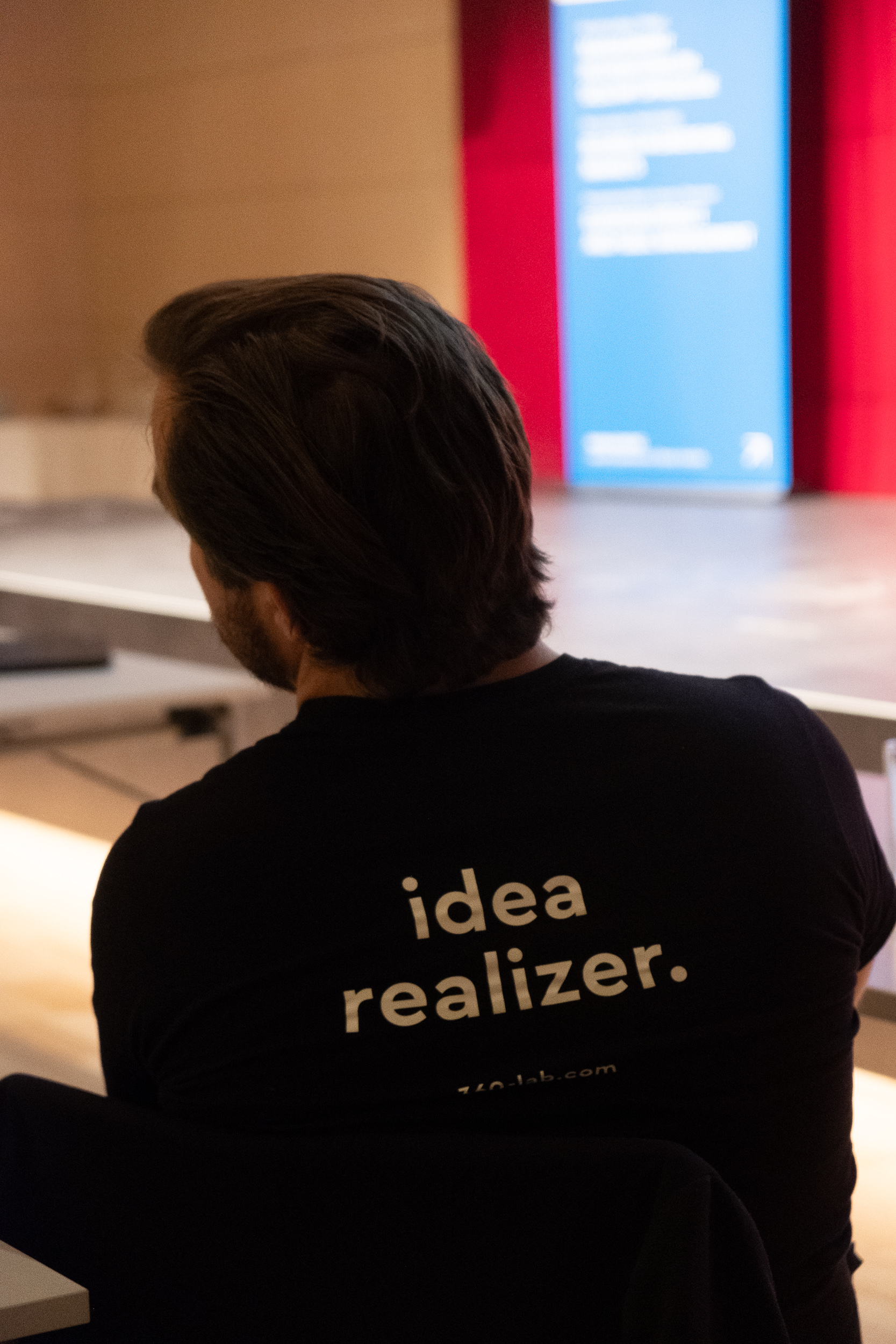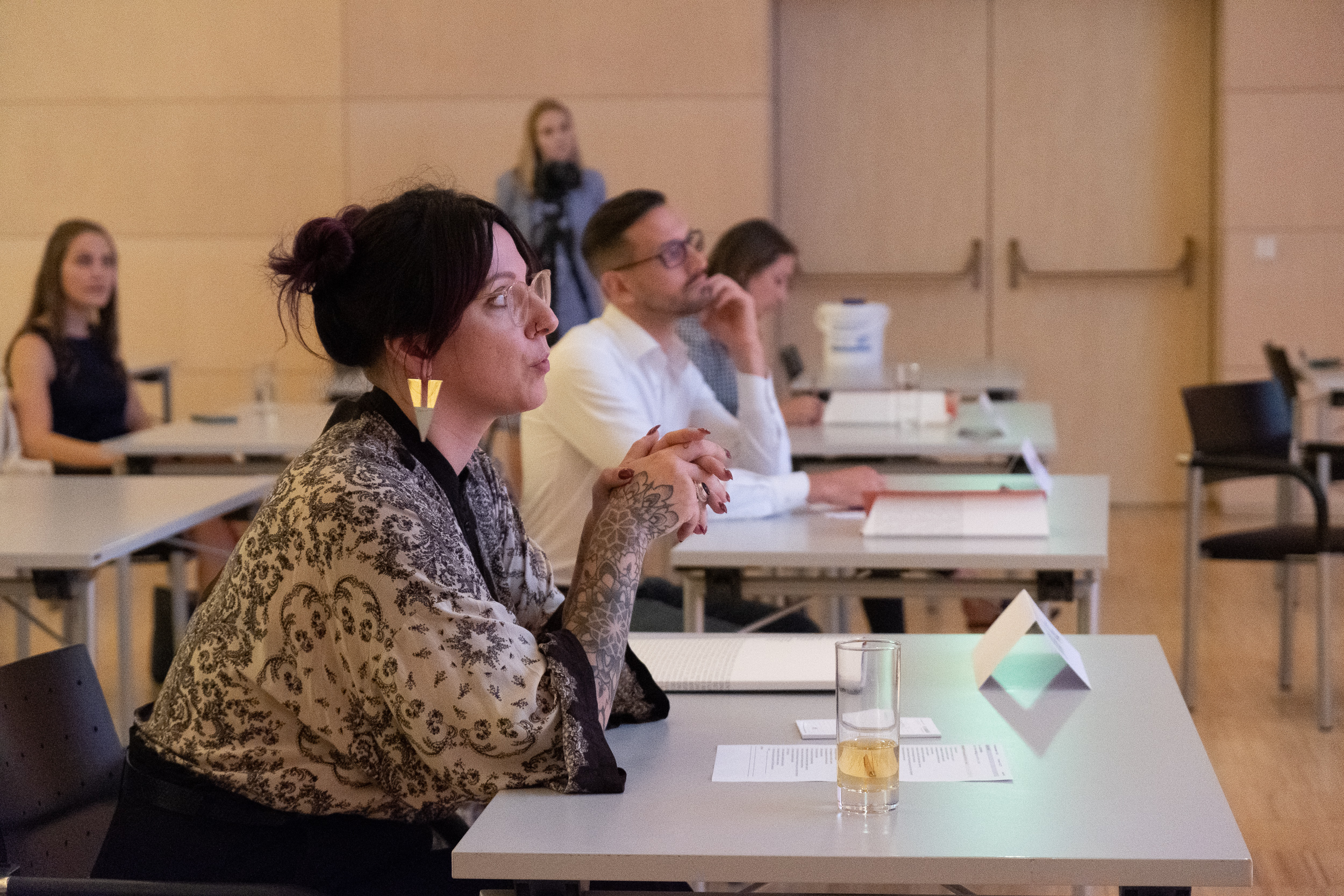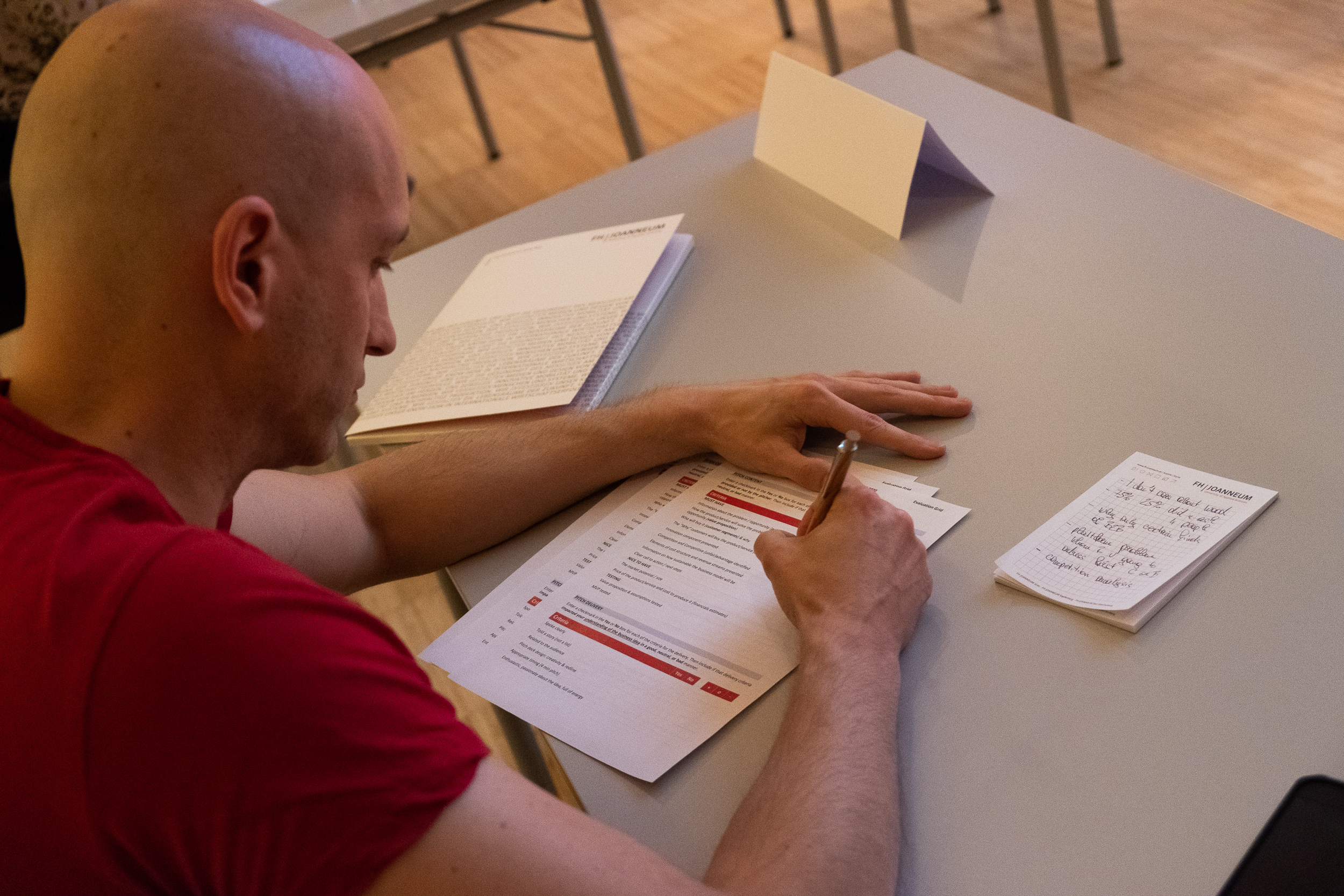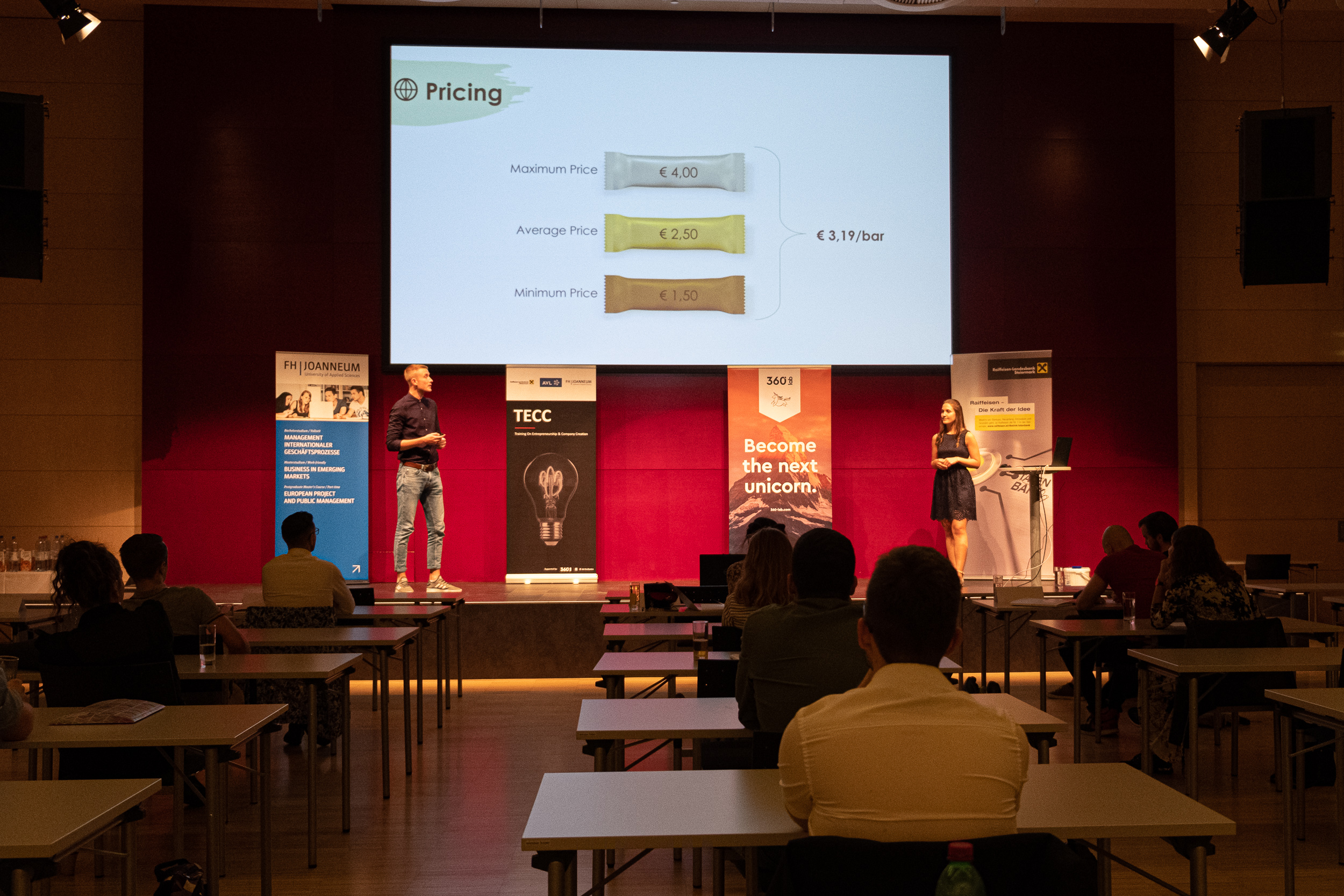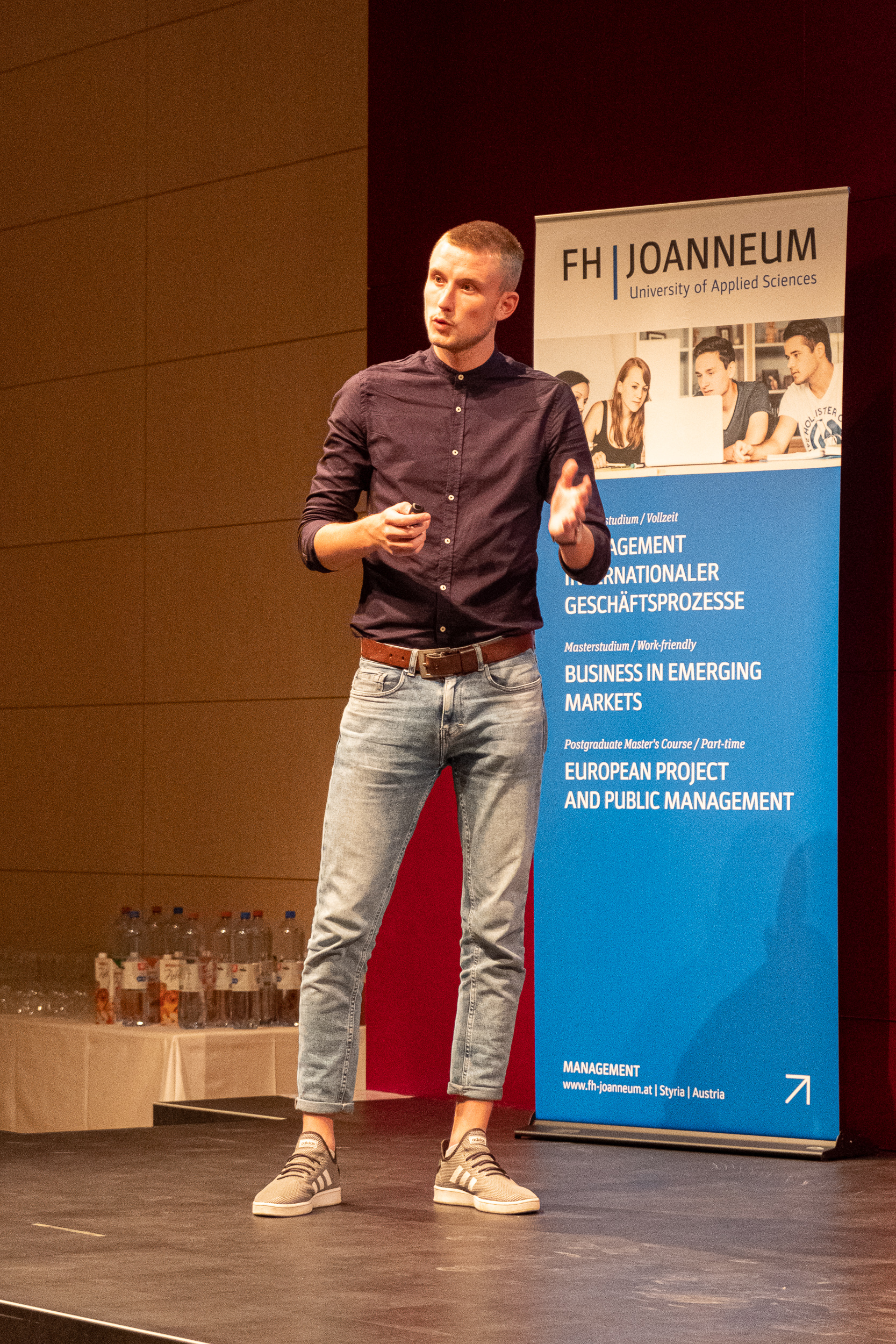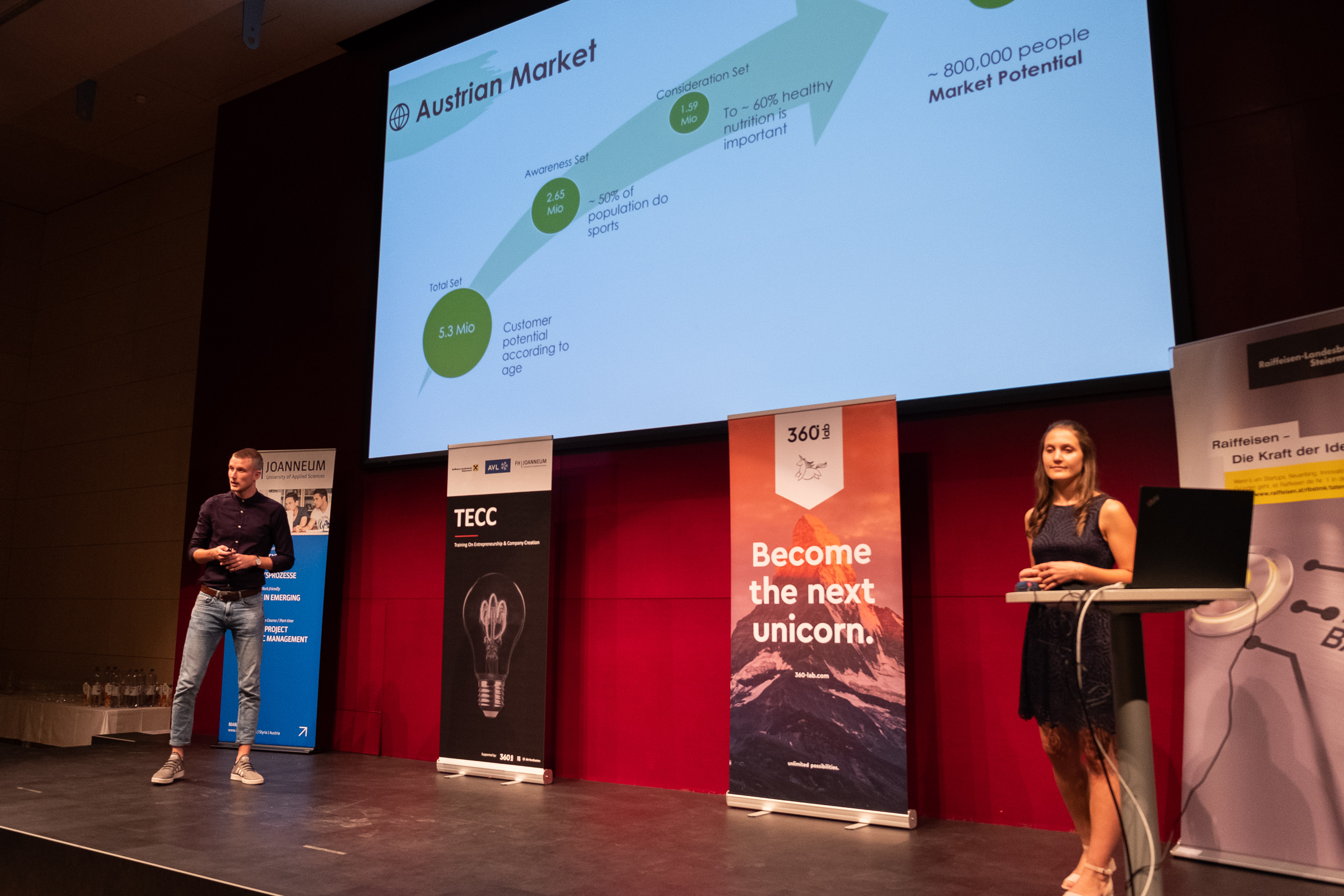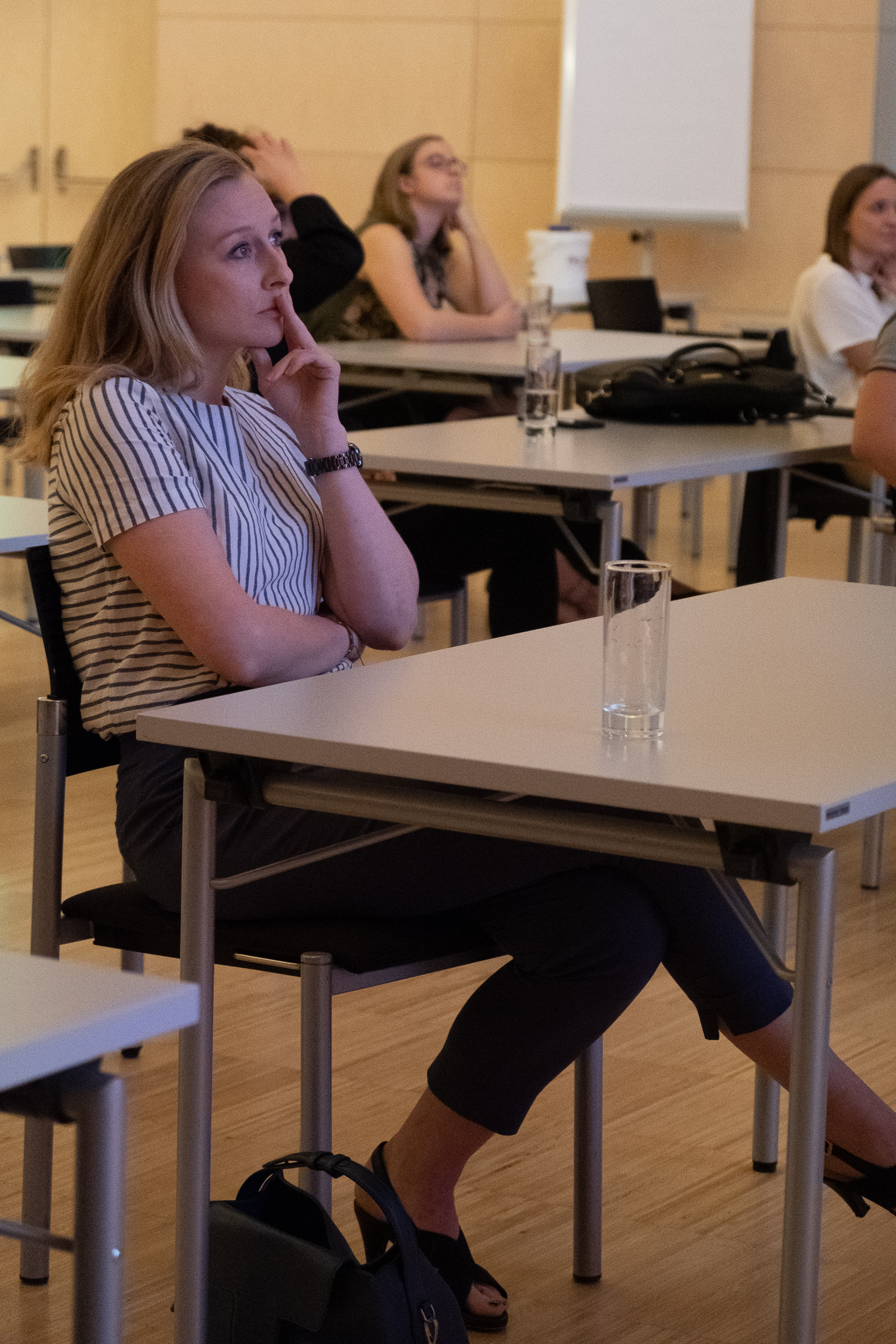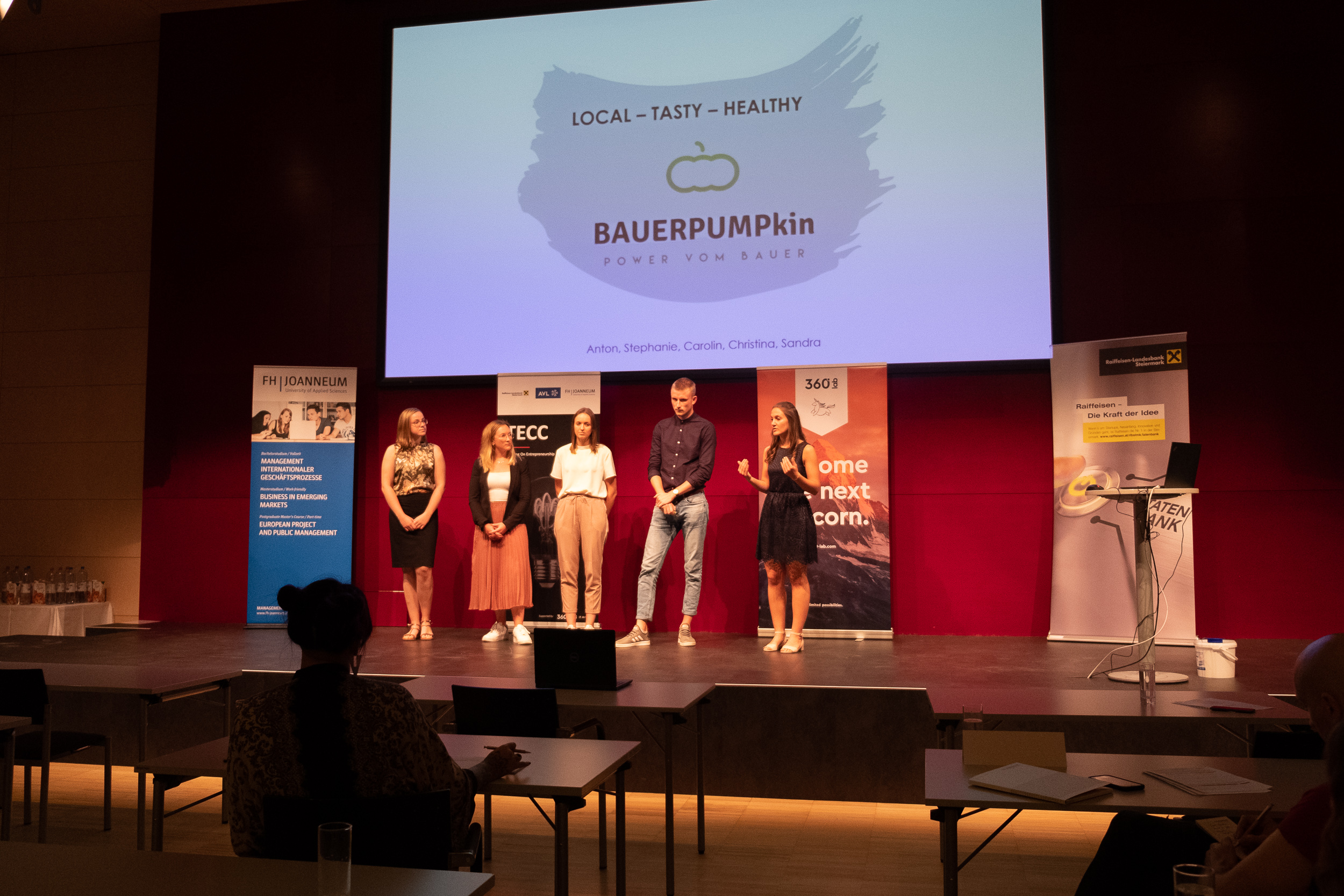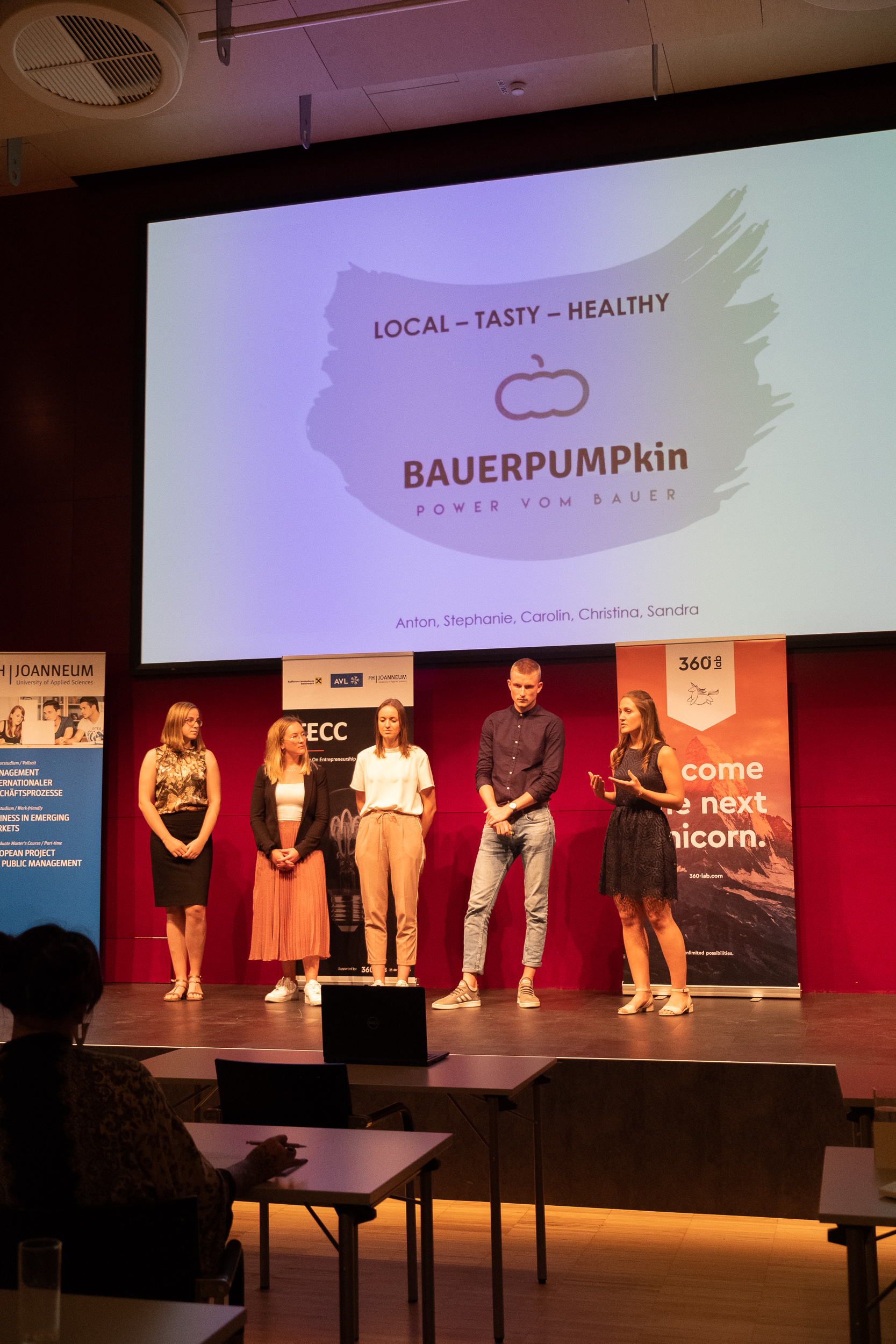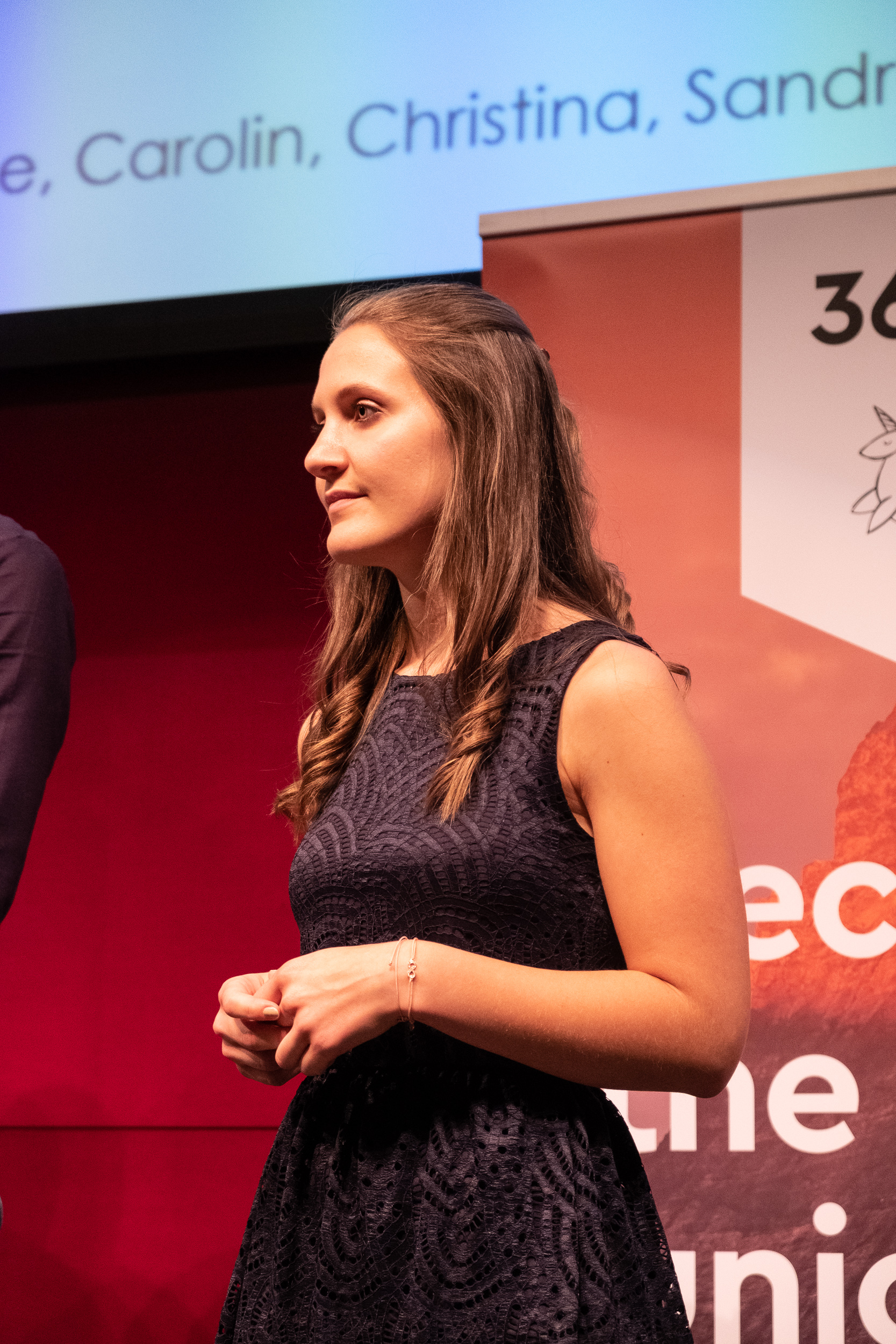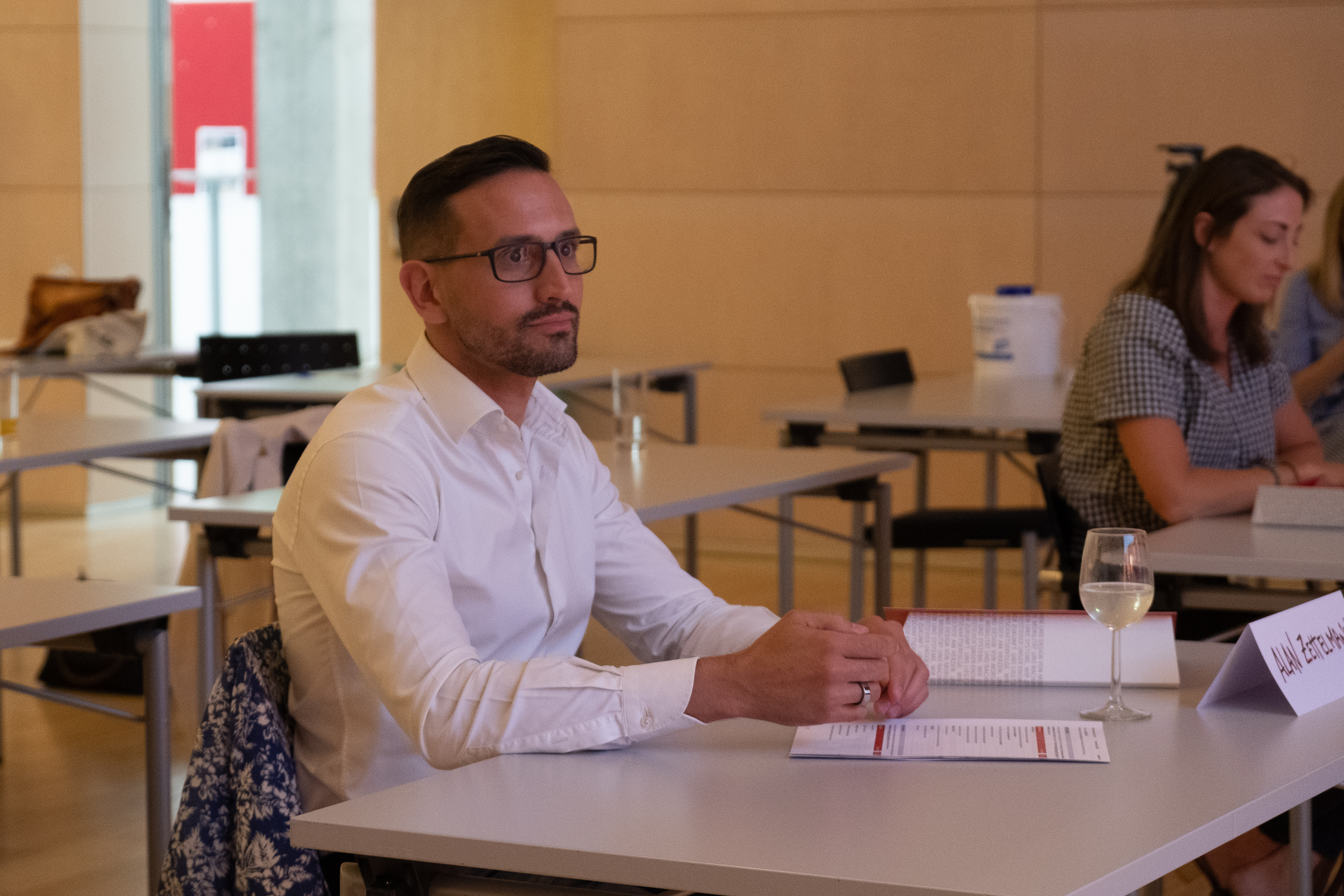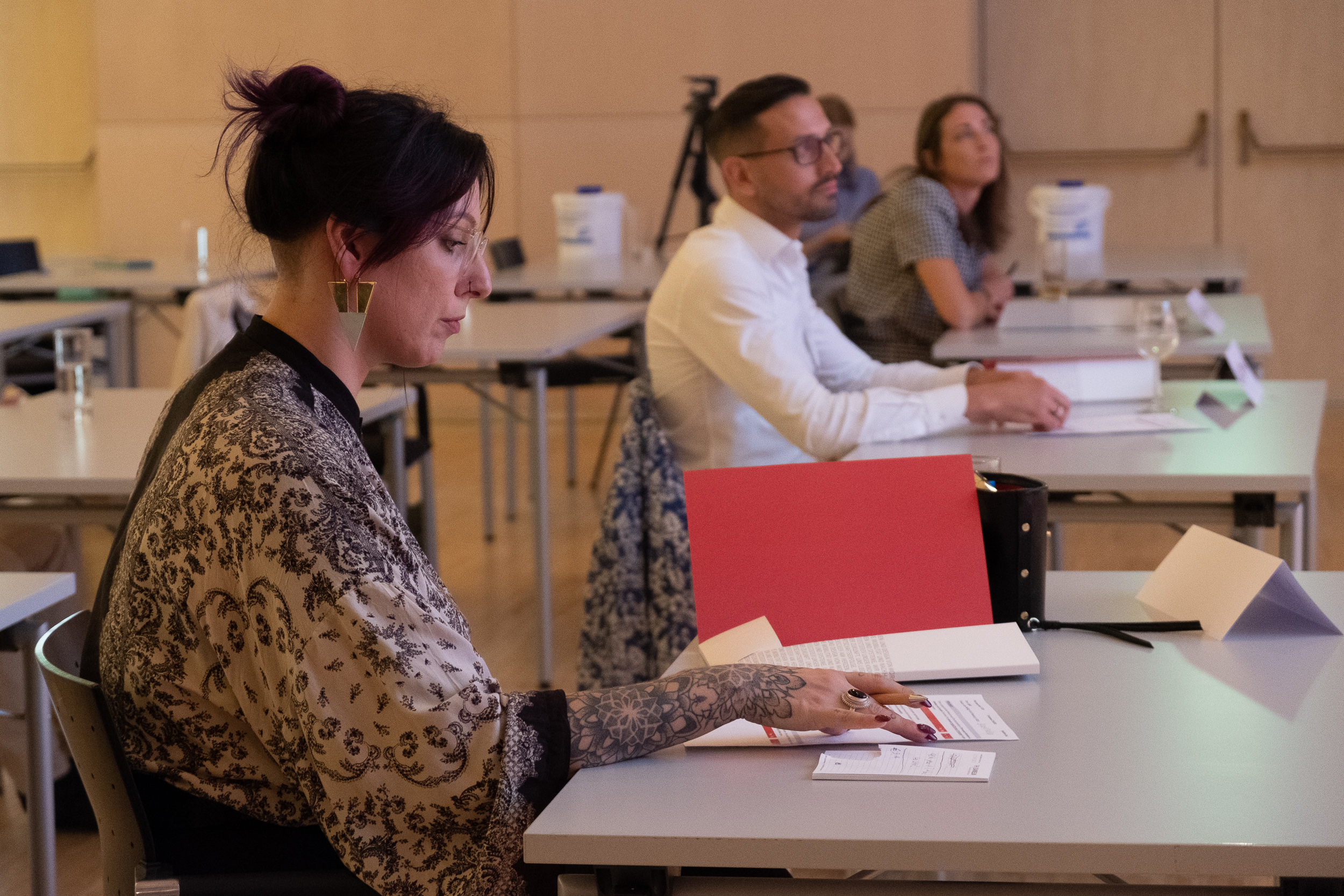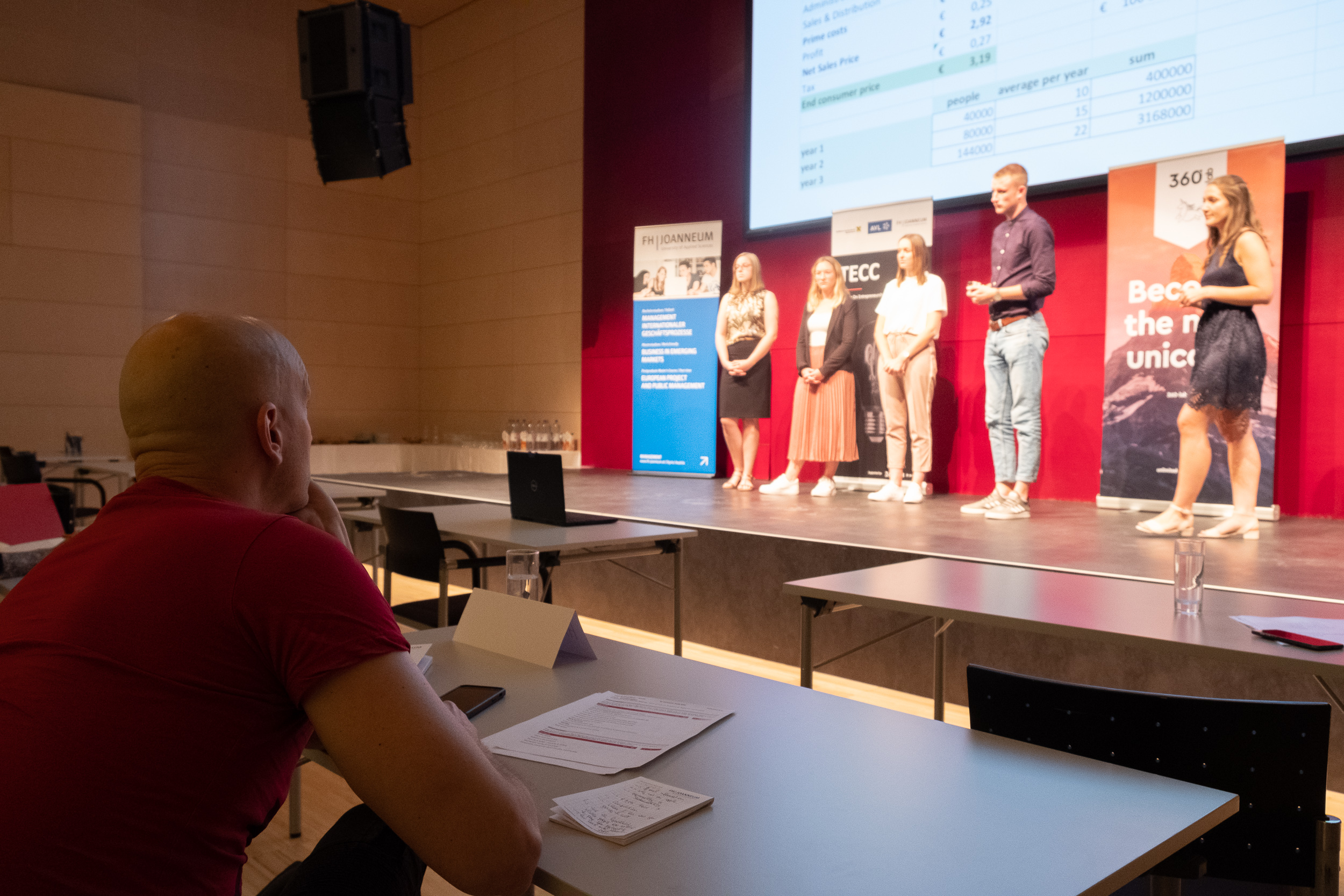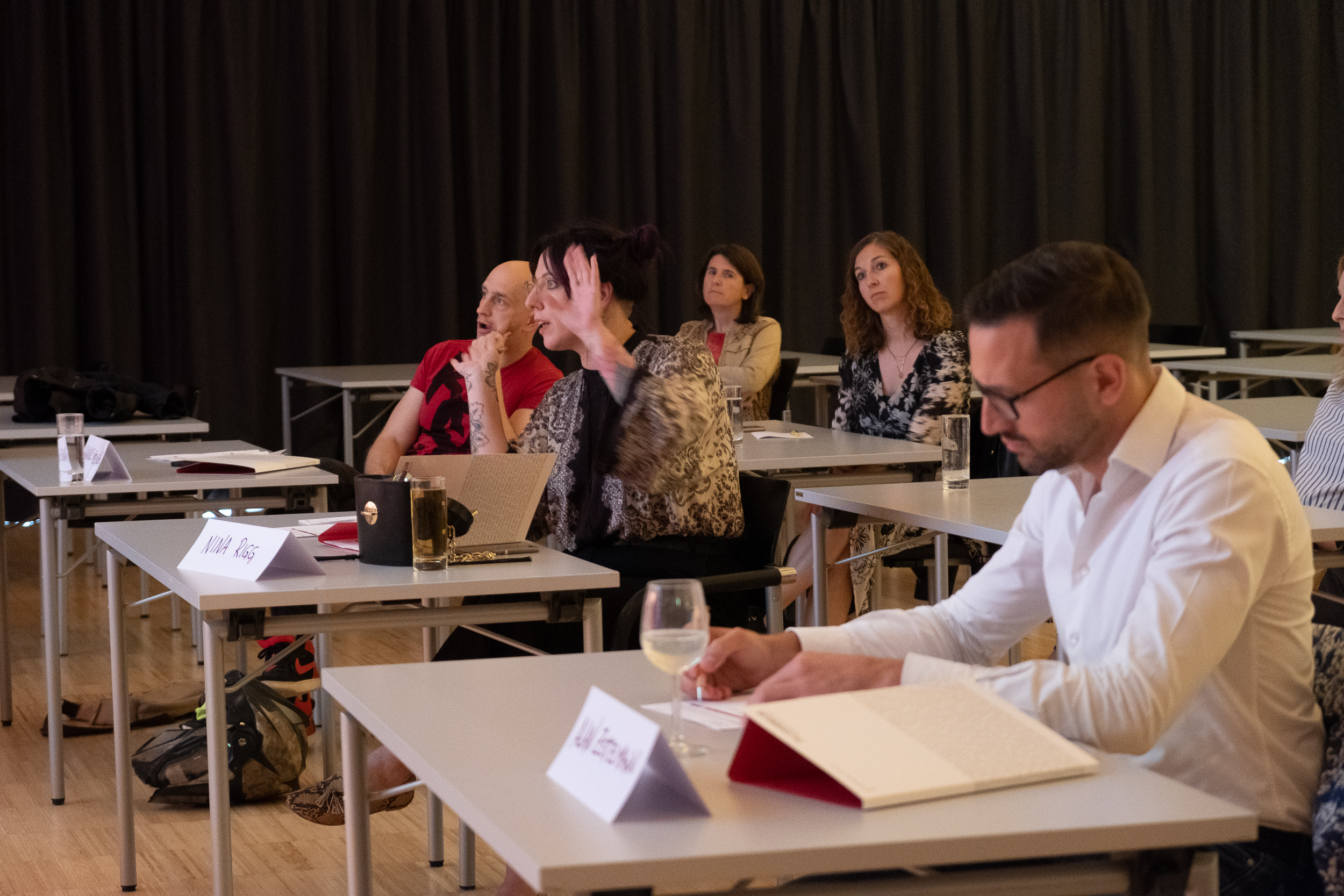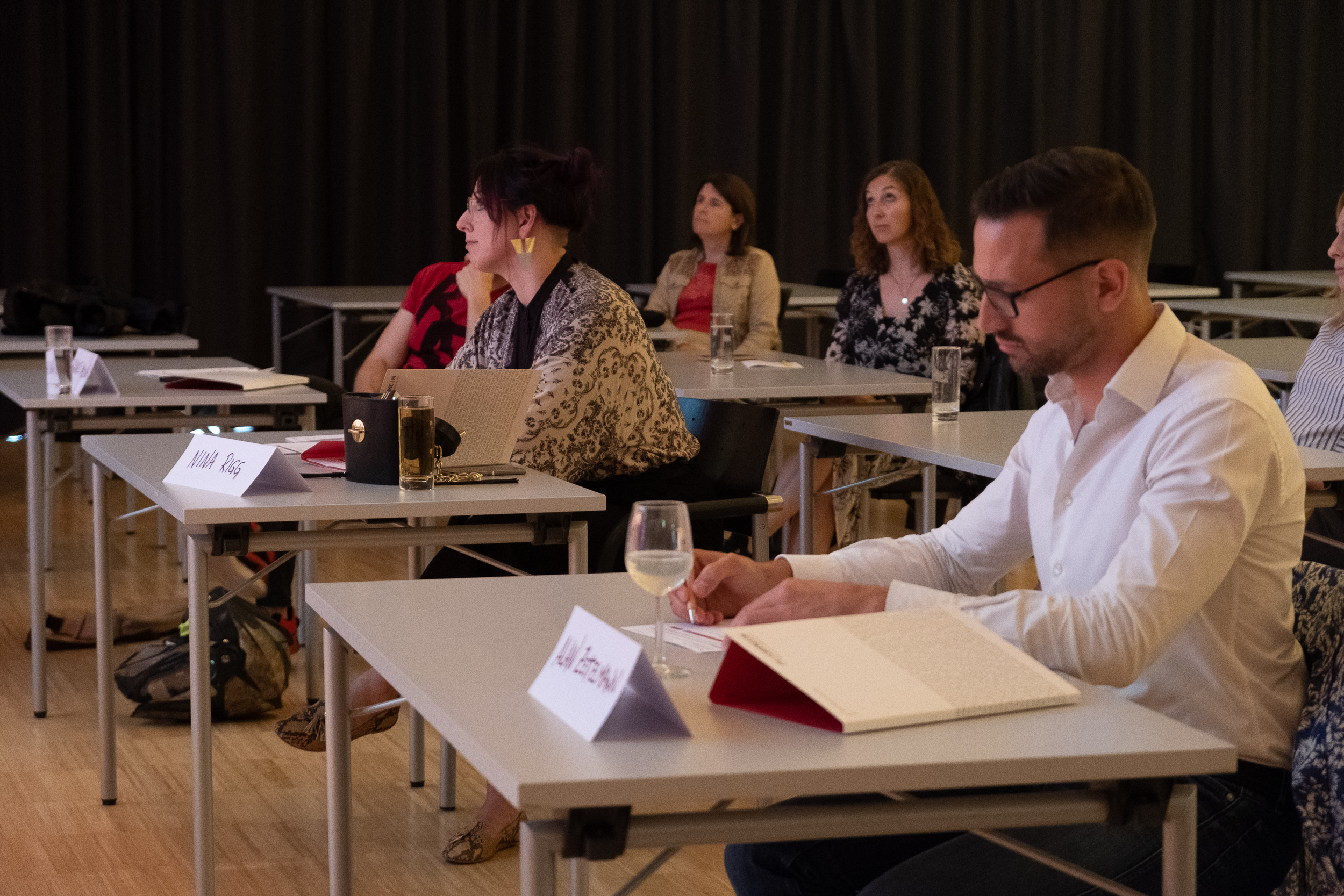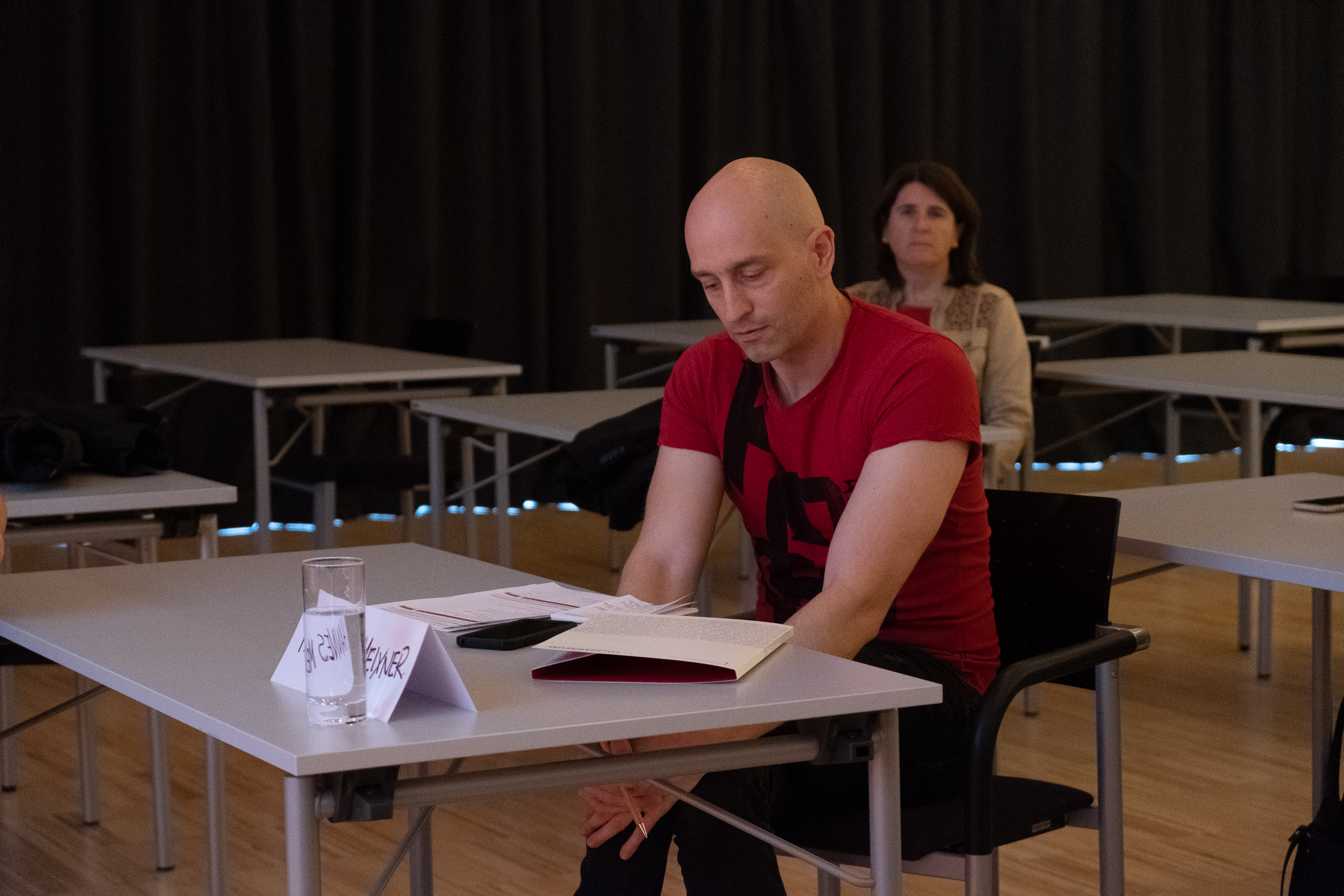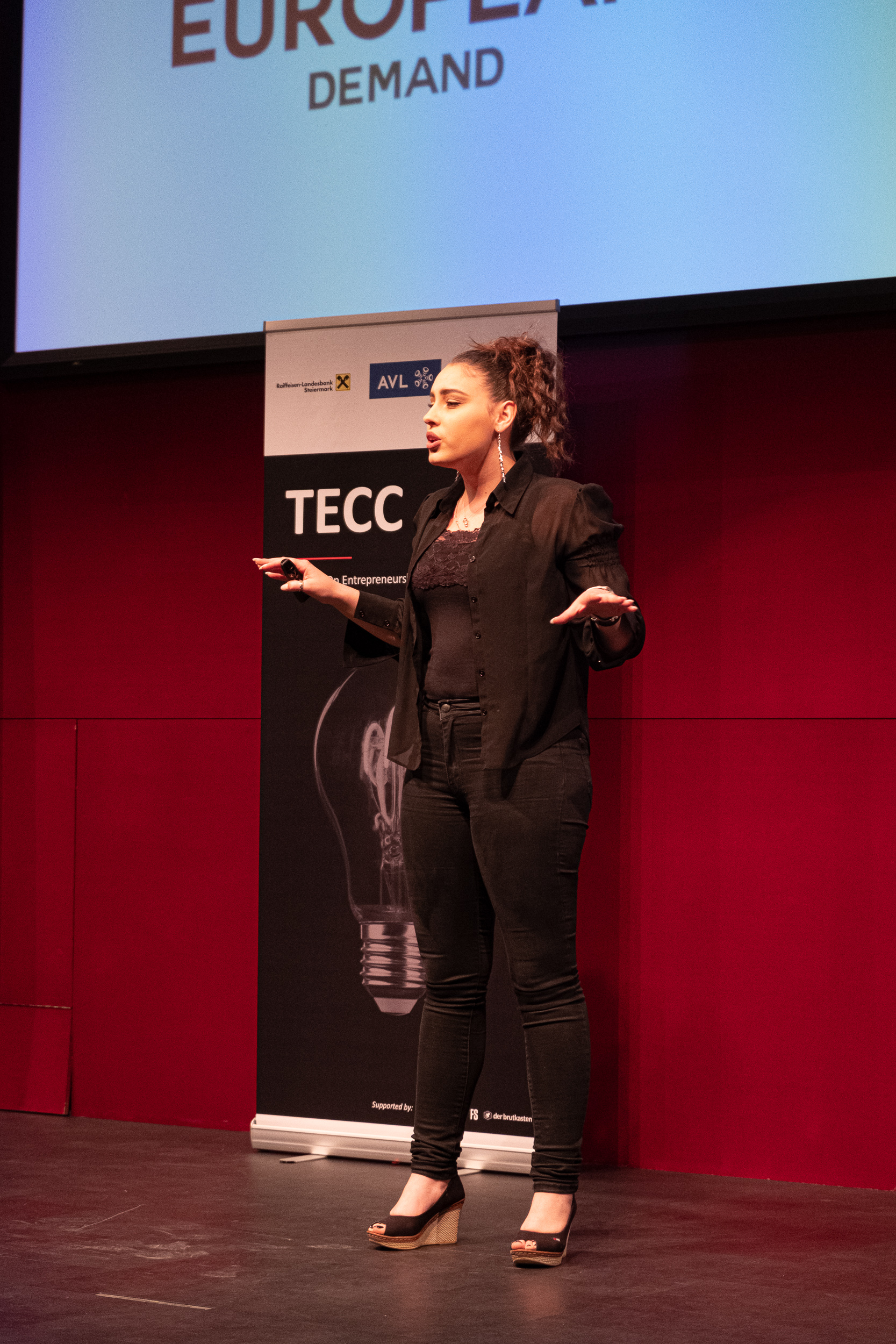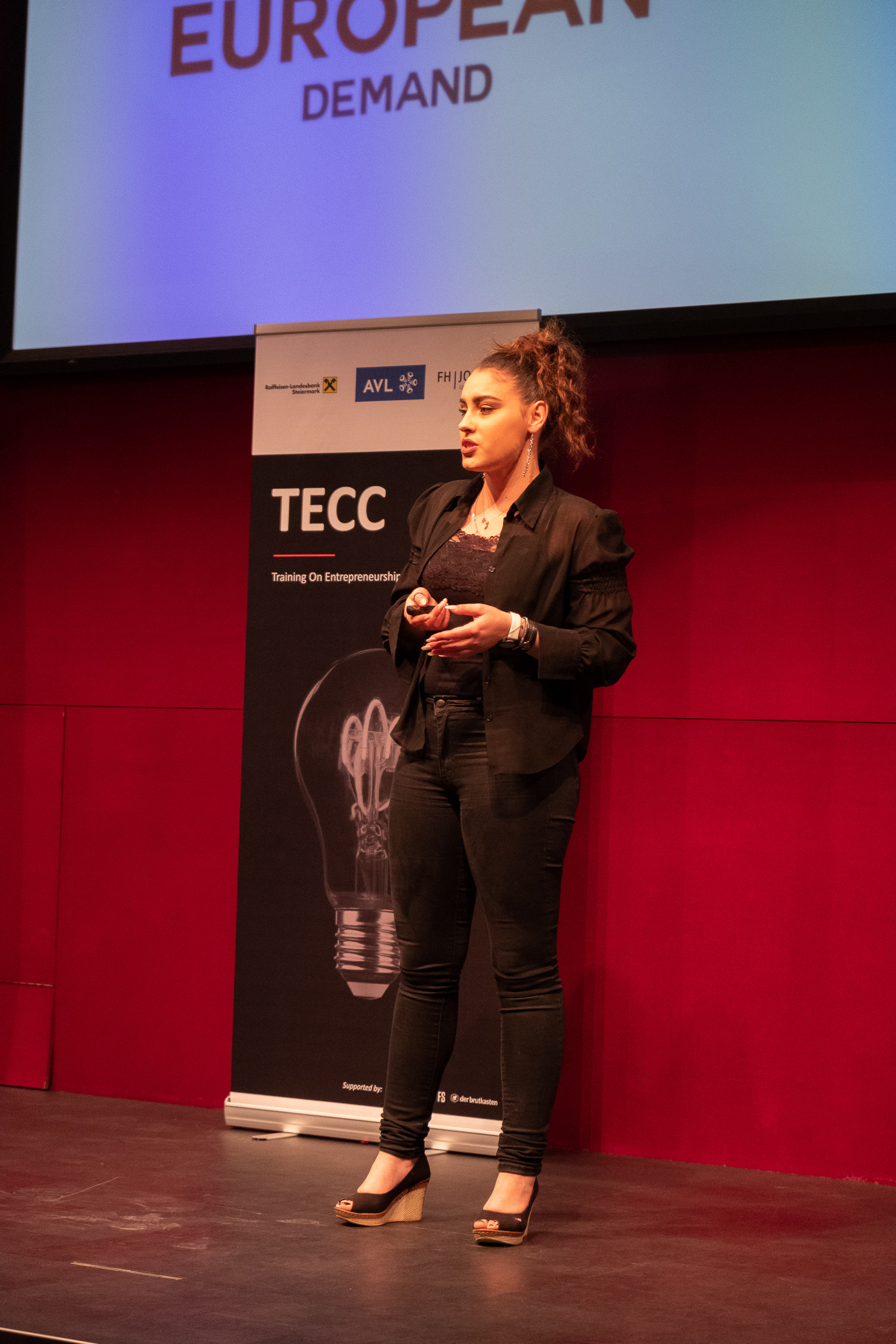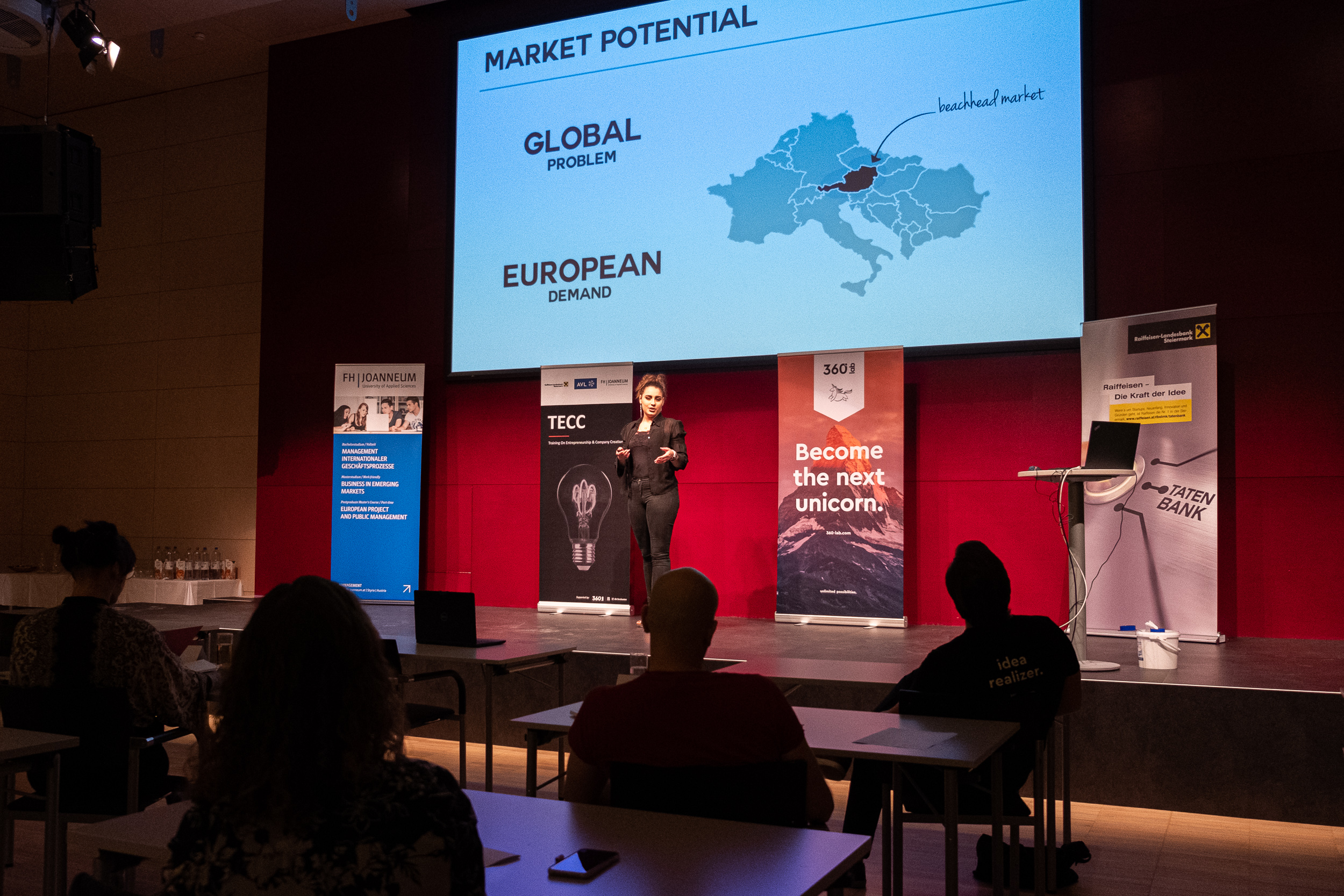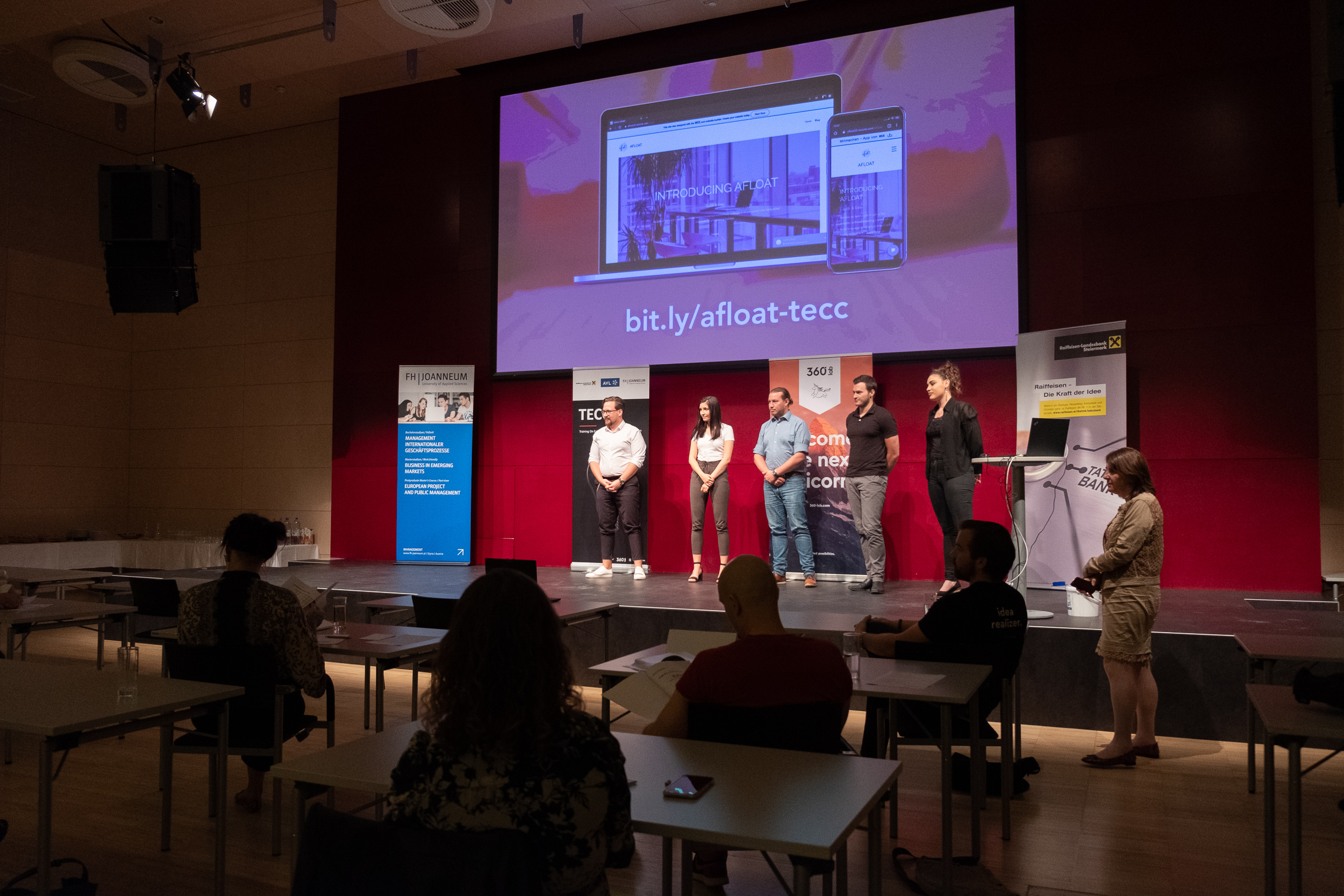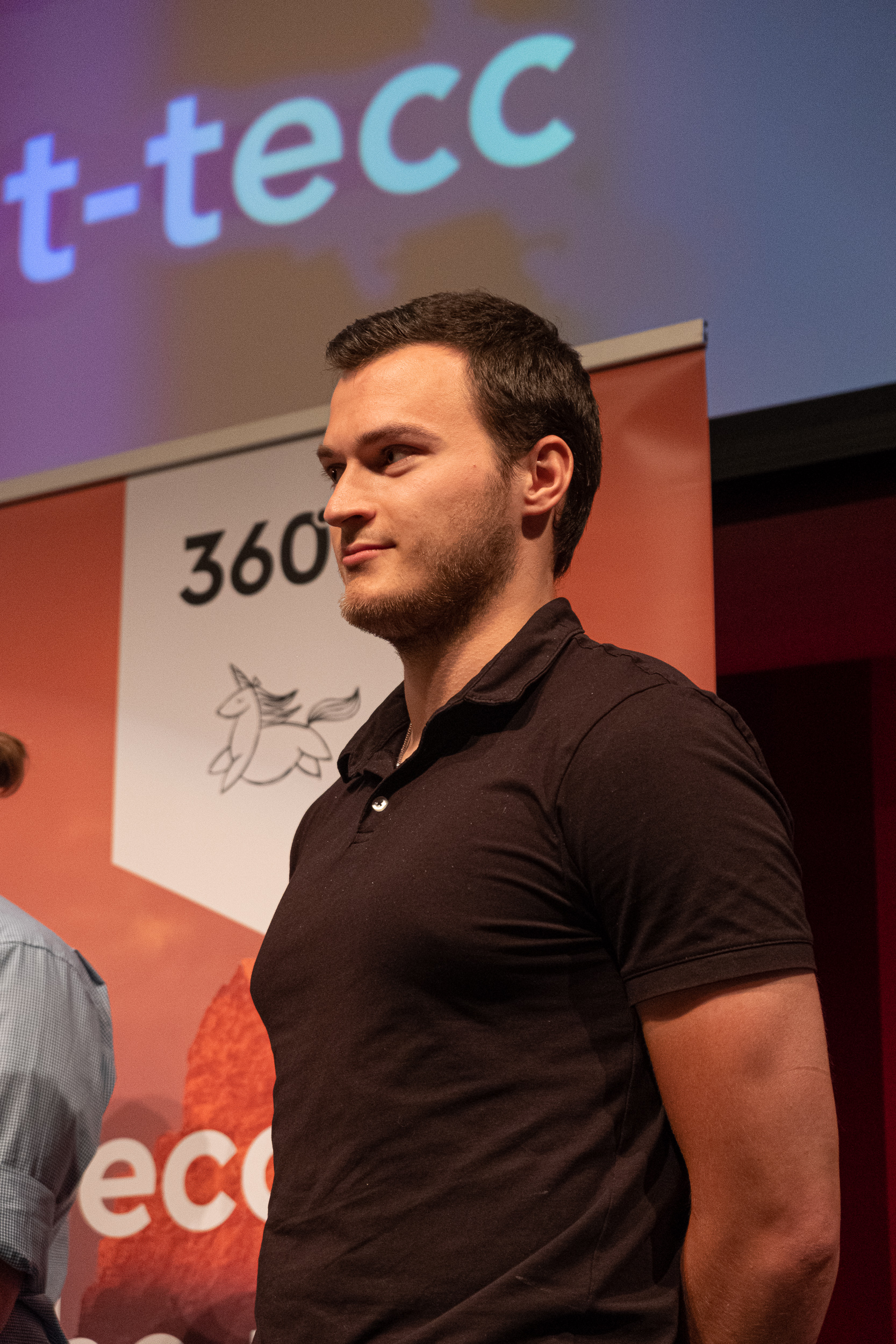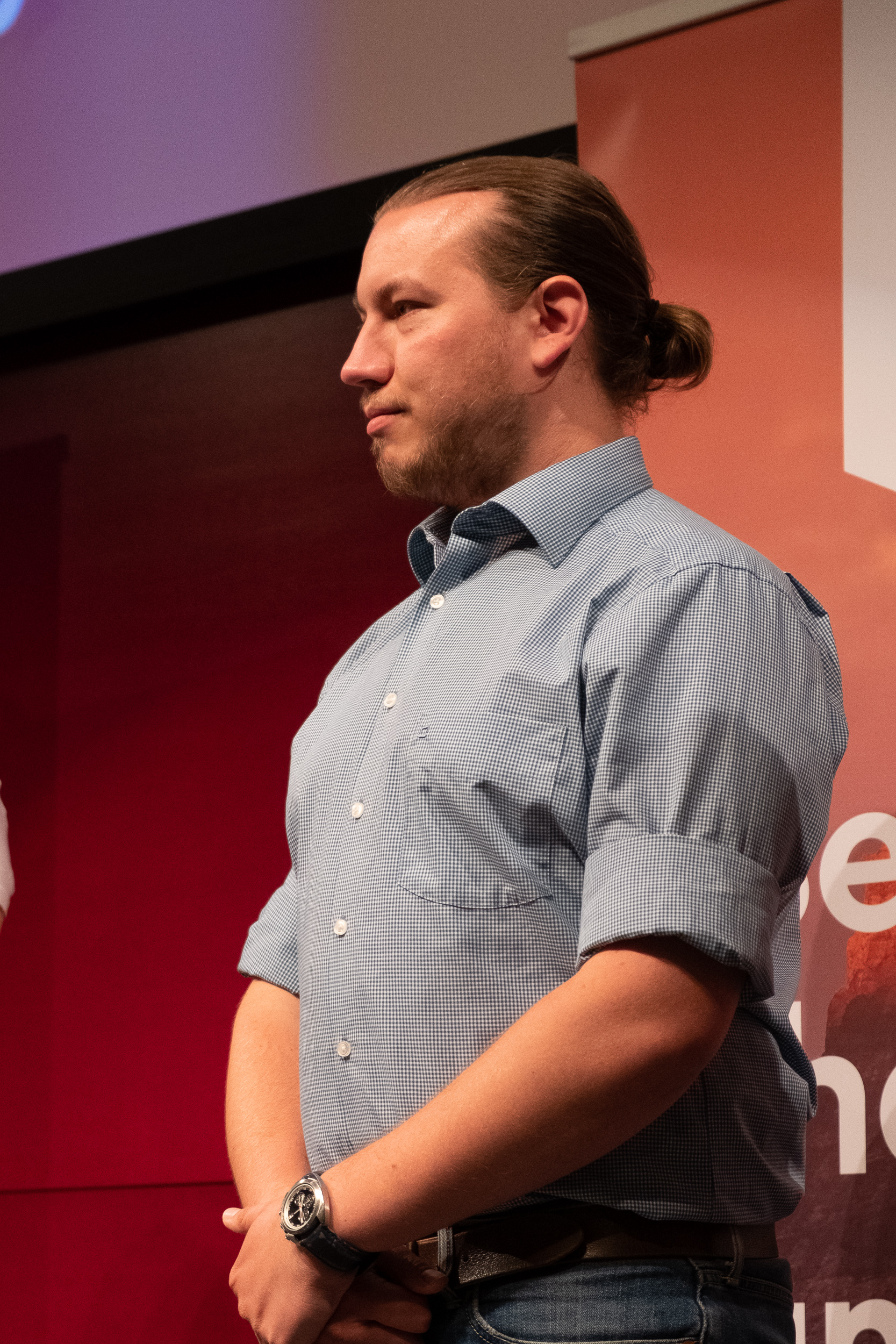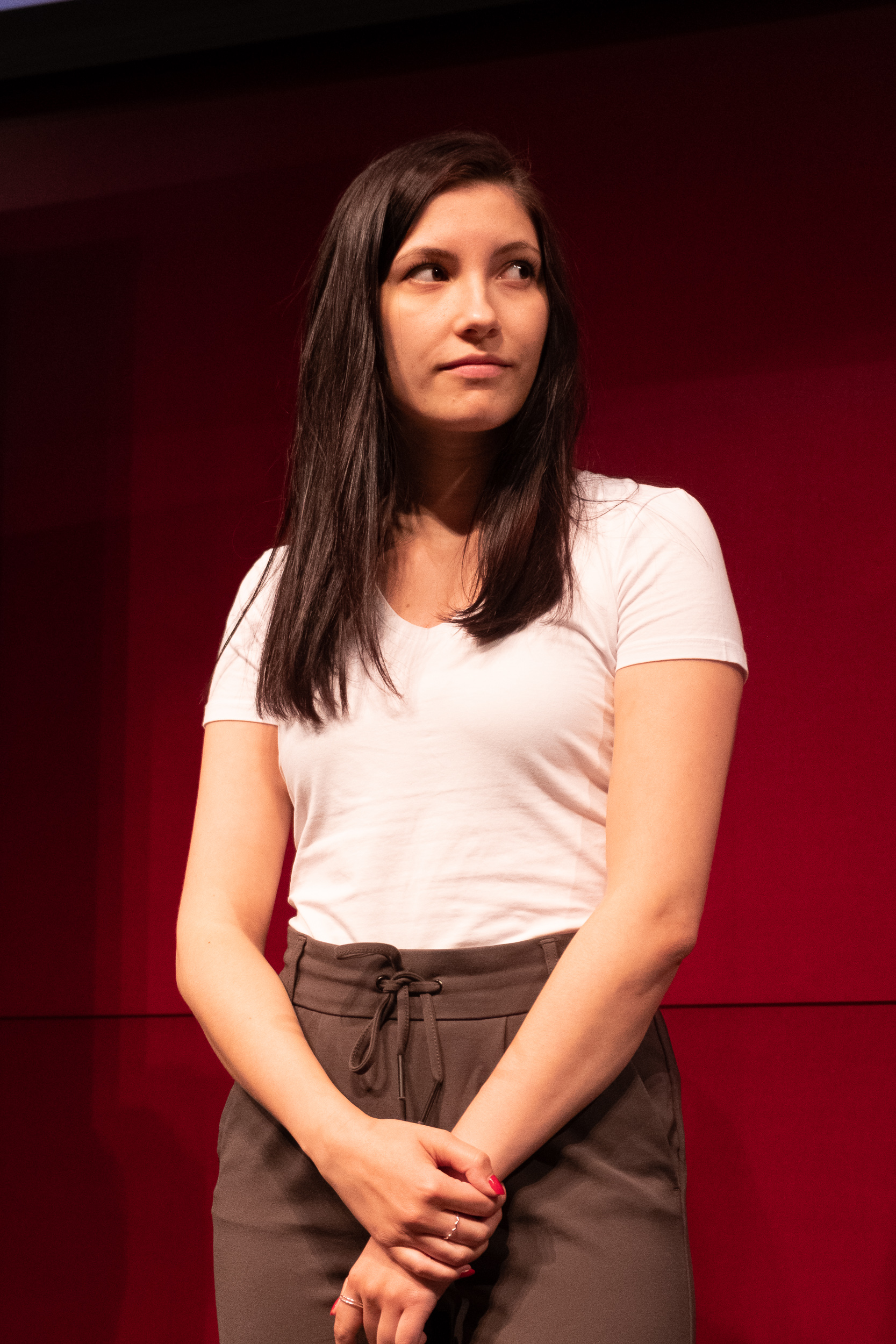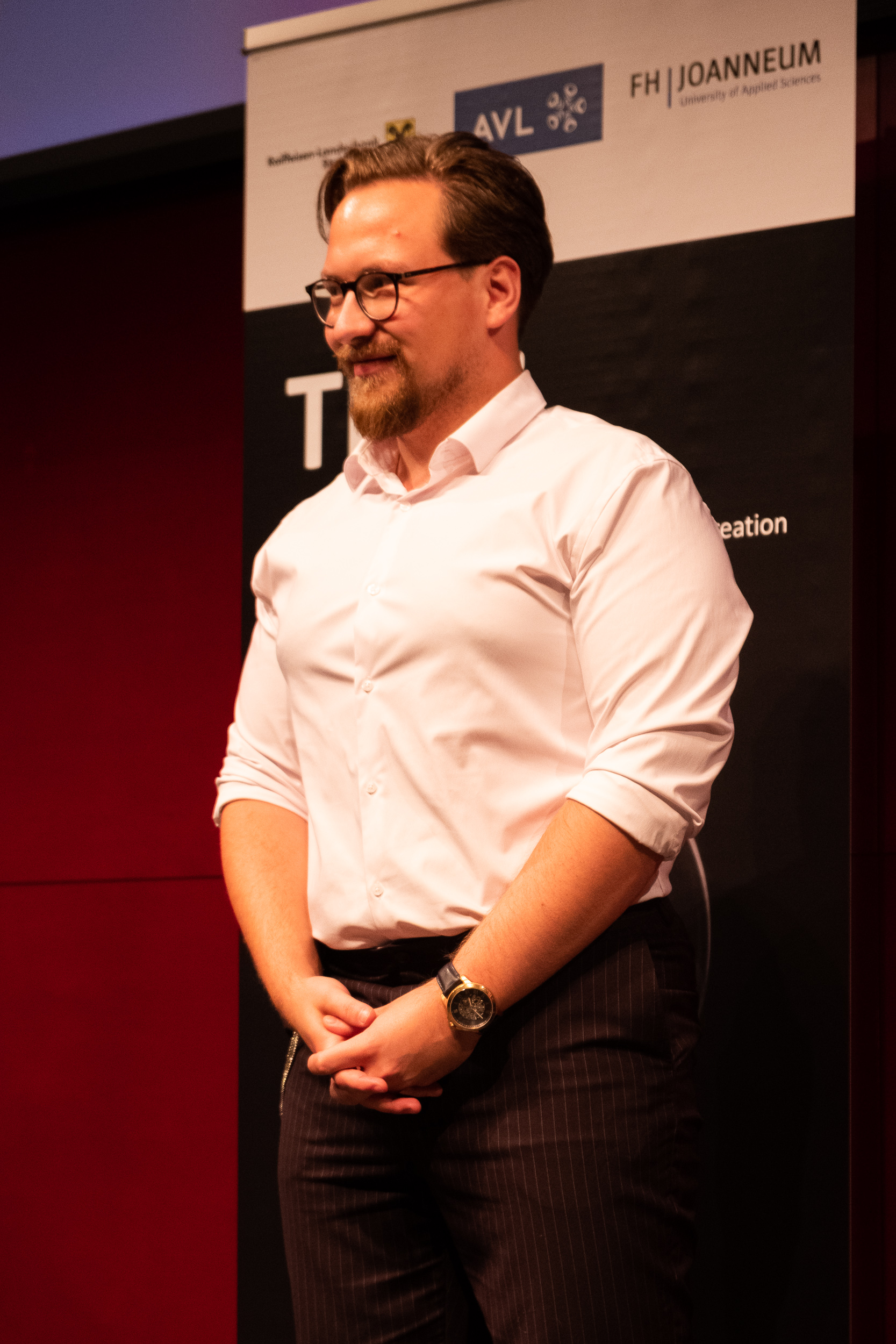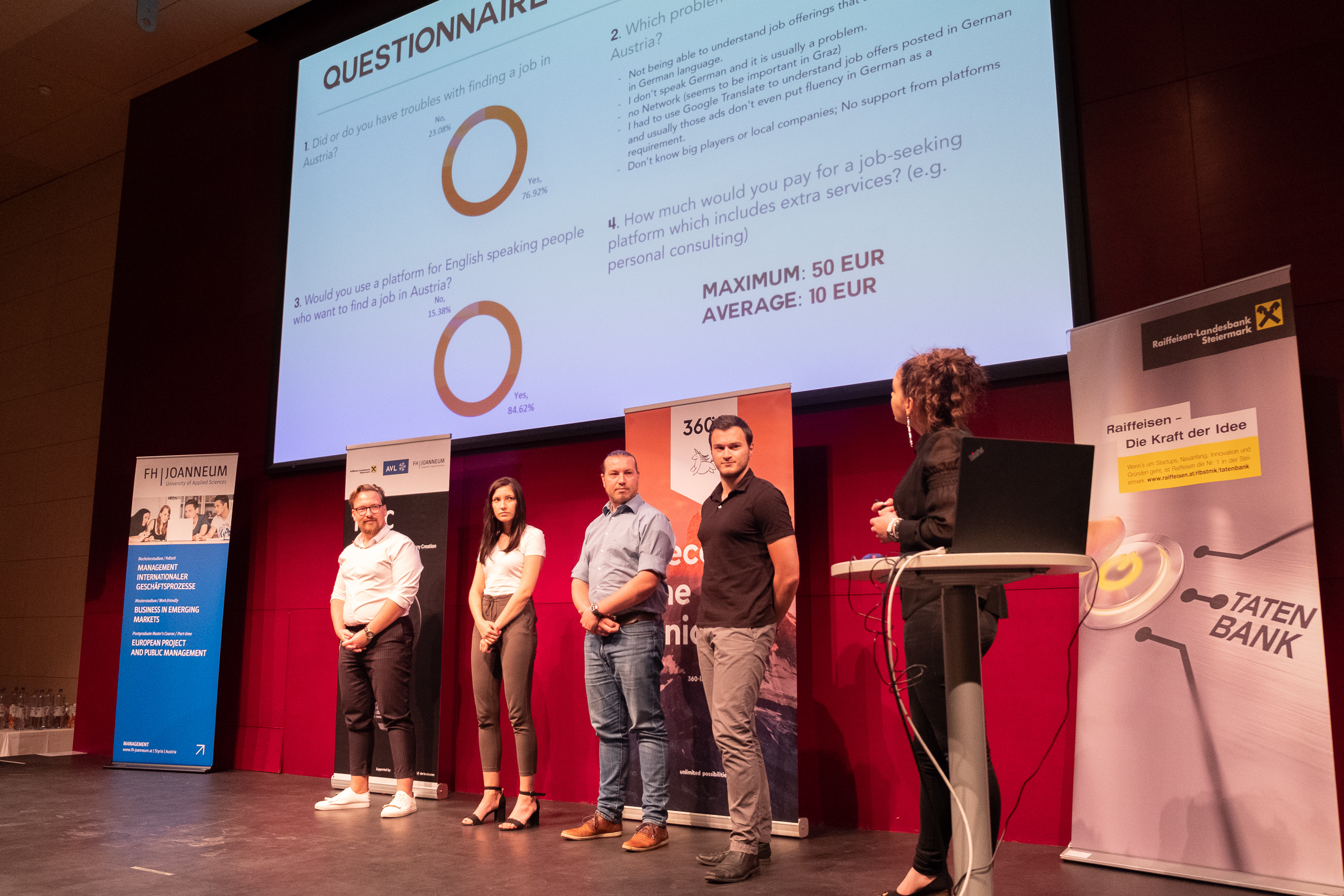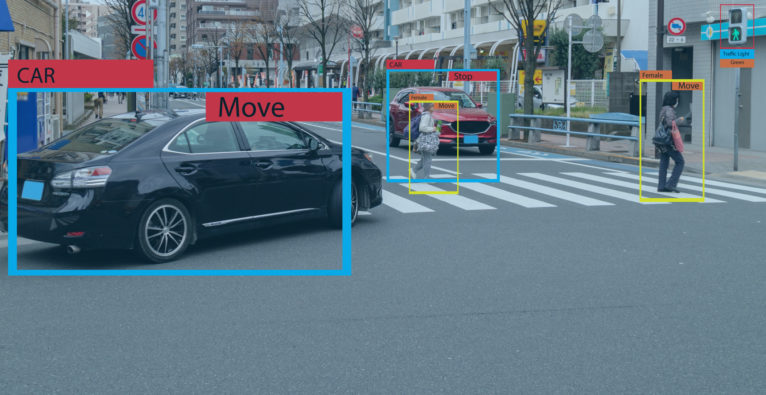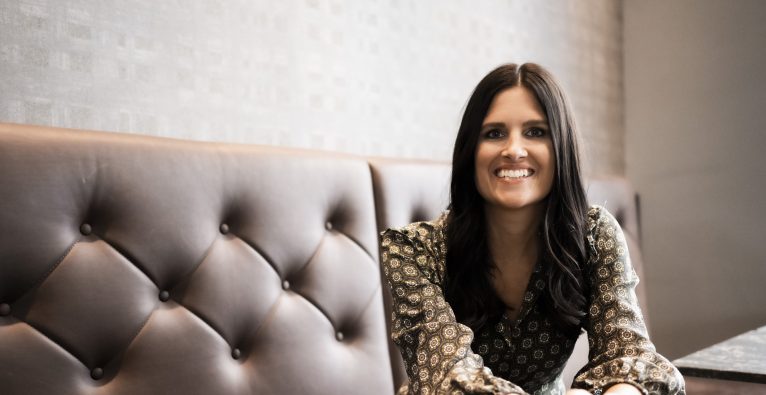✨ AI Kontextualisierung
The Corona crisis taught that the environment around us can change very quickly and we need to be more flexible and to constantly adapt our mindset to different situations, trying to catch new opportunities.
In such a complex environment, educational institutions and organizations are today closer than ever. They are working together to train young students, providing them with the skills and competences necessary to face the challenges of the future.
TECC – Training On Entrepreneurship & Company Creation – is an example of how universities and organizations can cooperate through innovative training formats which ehance the transfer of knowledge and the development of both hard and soft skills.
Students develop their own startup ideas with TECC
At the beginning of March 2020, the Institute for International Management at FH JOANNEUM together with its partners AVL List, Raiffeisenlandesbank Steiermark and 360Lab launched TECC (Training On Entrepreneurship & Company Creation), a new training program focused on the development of entrepreneurial skills and practical knowledge within the university.
“With the TECC training programme, we want to give students, together with our partners, both the theoretical basics as well as the mindset and our entrepreneurial spirit, so that they develop the tools they need to react flexibly to future challenges and find innovative solutions as founders or entrepreneurs in the company,” says AVL at Raiffeisen Landesbank Steiermark again emphasises the concern to promote creativity and innovation in the Styrian economy: “Qualities that are in great demand – in times of crisis all the more so. Young people who invest their energy in innovation are shaping the world of tomorrow and contribute with their ideas and implementation to the future of Styria as a business location”.
During these months, the teams have worked hard on the development of their projects, facing always new challenges and issues related to their potential markets. Partners have supported each team through coaching and mentoring sessions where students had the chance to get some practical insights about the startup and corporate’s world.
“We are very proud to be able to implement this entrepreneurship training at FH JOANNEUM together with our corporate partners”, says Doris Kiendl, FH JOANNEUM, about the programme: “The general conditions are of course difficult at the moment, but it has been shown that even in virtual space thoughts can sparkle and that entrepreneurial ideas can be worked on with fun and energy. This gives our students very important additional skills.
“Especially in challenging times, innovative ideas and passionate people are needed to make them become reality. We are very pleased to support students within the framework of TECC, together with our partners. With proven tools, our experience and expertise we want to prepare the next generation of entrepreneurs for this journey”, says also the team of the 360 Innovation Lab
Three business ideas as a result of TECC
The project involves students from different courses of study who have the motivation to develop their own business ideas and to acquire the necessary skills. During the program, students have attended online lectures and meetings with professors and experts in the fields of business development, business modeling and business planning. As result, they came up with three business ideas in different sectors and with the creation of multidisciplinary teams.
These are the three Teams
- Manuel Karner, Fabienne Burger, Sara Maria Oberleitner, Andreas Kollmann:
“We are DigiBills, a startup which aims to revolutionize receipts and digitalize them. We wanna create a more sustainable everyday life and improve the availability and categorization of receipts. Our app will provide a throughout solution for customers and businesses alike. Our team appreciates especially the possibility and guidance throughout the testing phase and selection of possible MVPs.”
- Sandra Fröhwein, Anton Heidinger, Carolin Kobierski, Stefanie Lukas, Christina Niederl:
“We are BAUERPUMPkin and our mission is to offer local produced protein bars to health-conscious people. We want to create a fitness snack that does not only support local farmers but also offers a tasty alternative to artificial shakes. TECC helped us to realize that any idea can lead to great success. You just need to believe in your dreams and be agile – because the first idea does not have to be the last one! Constant changing and adapting is key and what we also learned: it is ok to fail – because you will come back stronger.”
- Ivana Civsa, Collasius Yannick, Rothschädl Markus, Schadinger Julia, Waltenstorfer Tobias:
“Our project is called afloAT and it’s a platform that connects companies with highly skilled individuals who do not speak the local language. What’s in it for them? For the companies we are filtering out the best candidates for the job posted, and for candidates we are providing consultancy services in terms of reviewing the application documents, CVs etc.; What TECC told us (amongst so many things!) is that even when nobody believes in your idea at first, you can work on it and prove everyone wrong because you adapt it your potential customer’s needs and show that any idea can be feasible.”
Presentation of the start-up ideas at a pitch event
The first semester was closed with the Final Pitch Event which took place on 23rd June 2020 at FH JOANNEUM. During the final event, each team had around 5 minutes to pitch its business idea and to convince guests that it could become a business opportunity.
The students showed to the audience how they have structured their business models and how they have built and validated their first MVP (Minimum Viable Product). The pitches were evaluated by a jury of four experts. At the end, the students received a feedback on the basis of the criteria of value proposition, market potential, innovation, business model, design of the presentation and pitch.
The event was also an opportunity to exchange valuable experience concerning the collaboration between corporates and institutions as way to enhance innovation and to spread the entrepreneurial culture.


